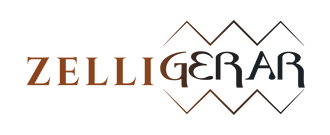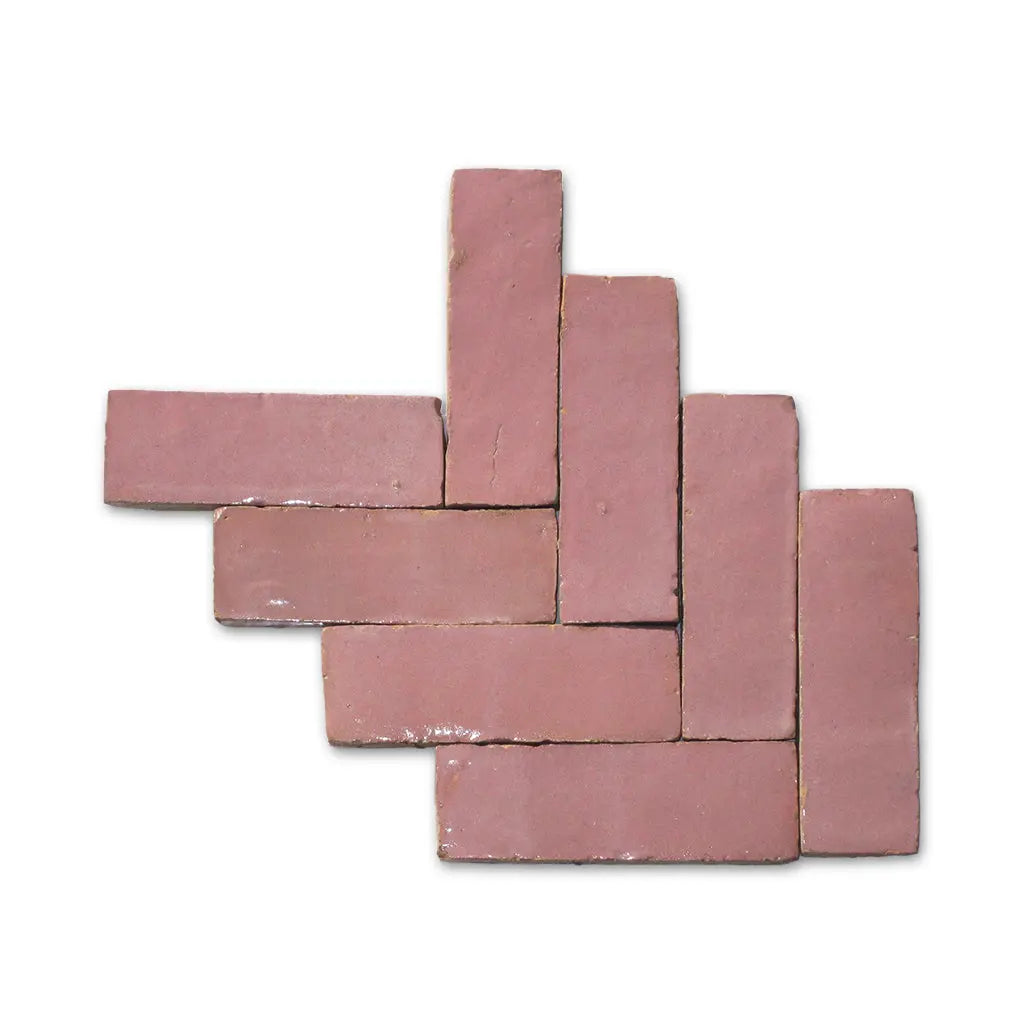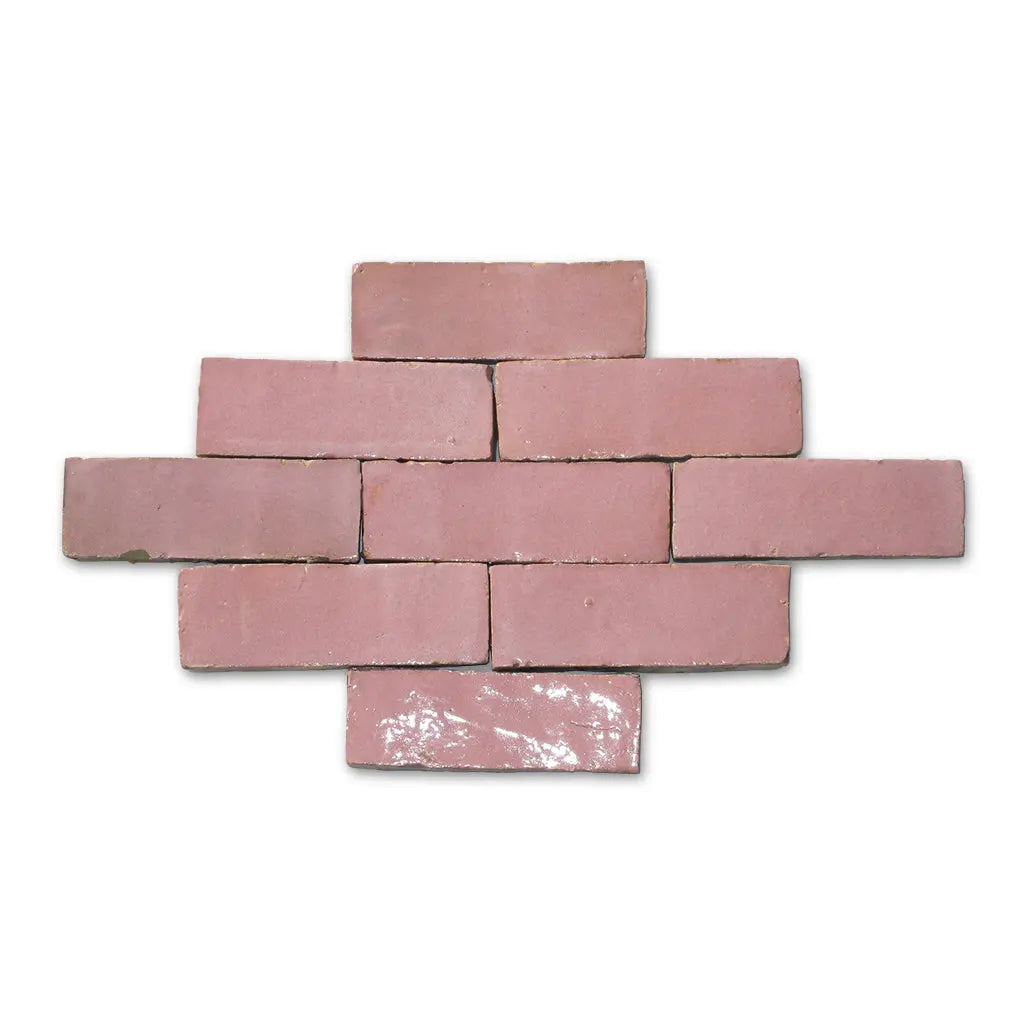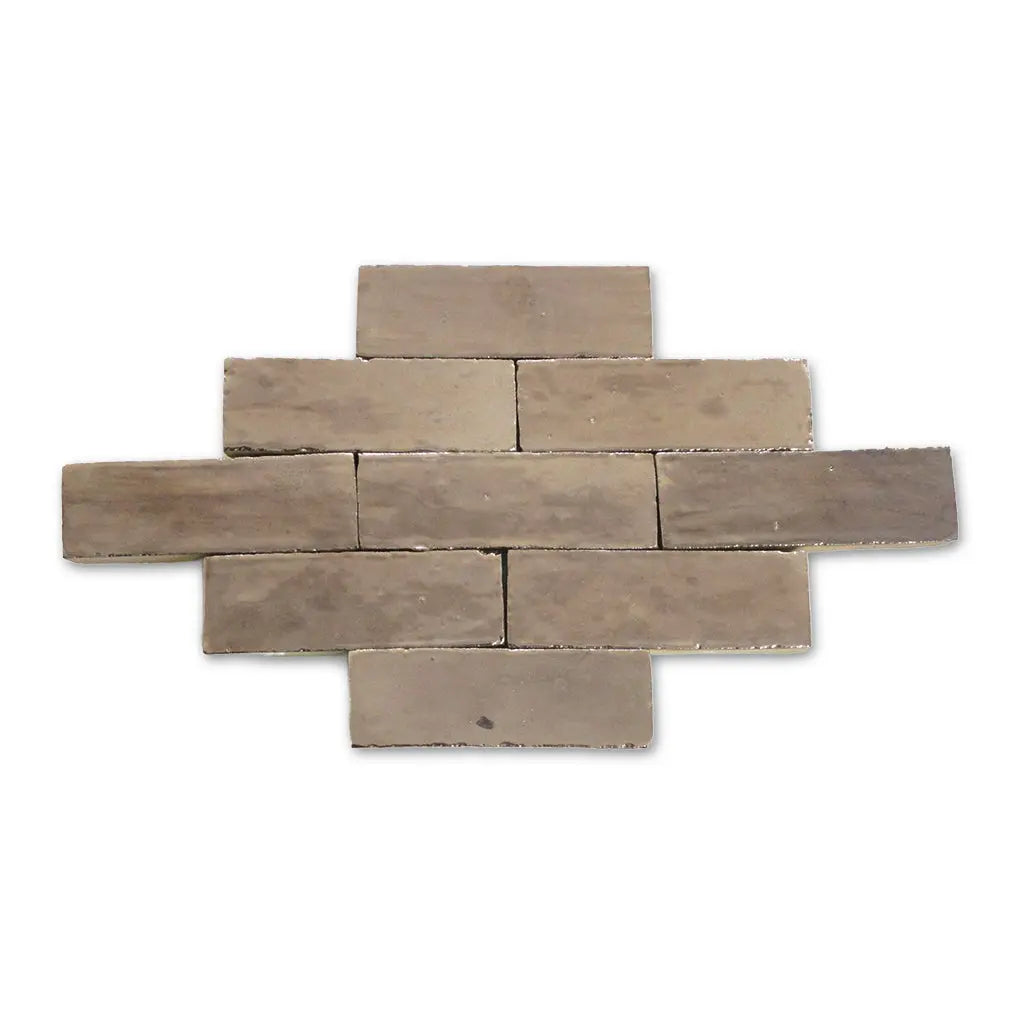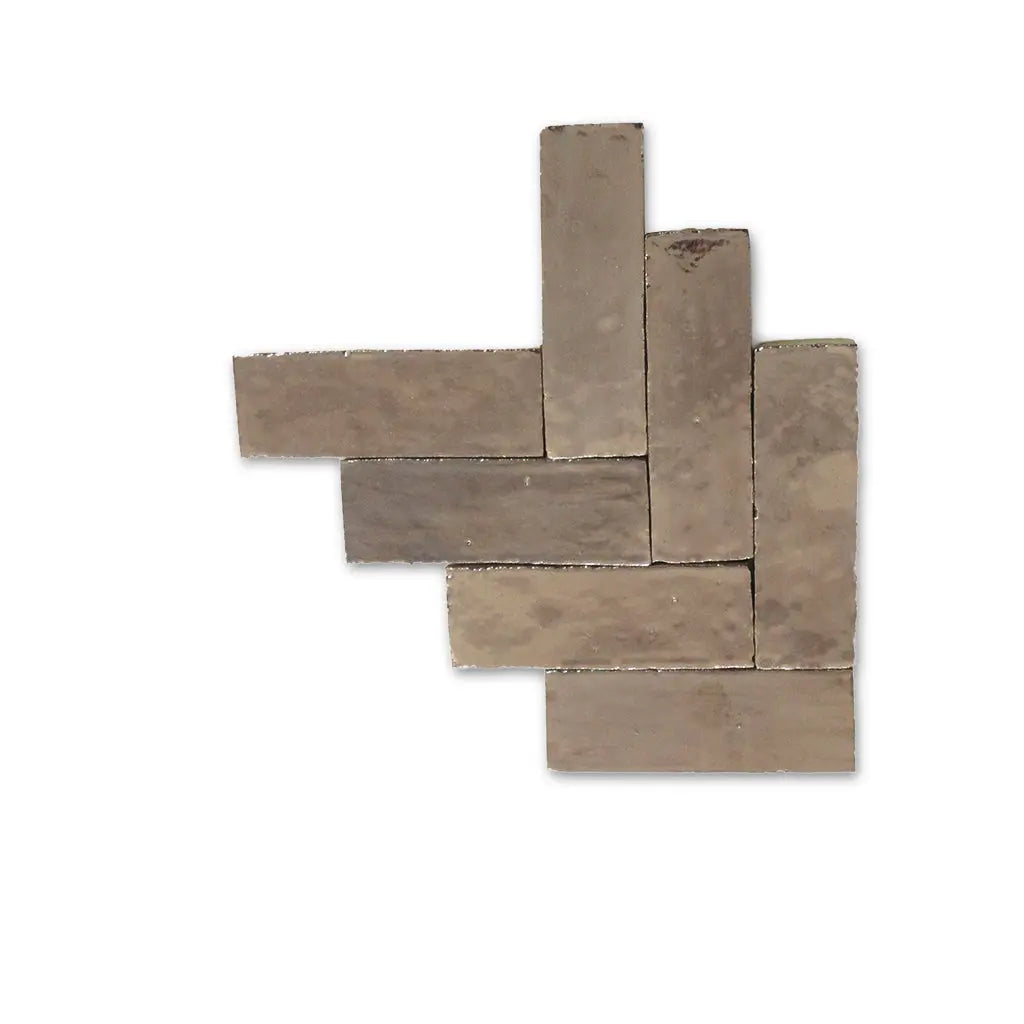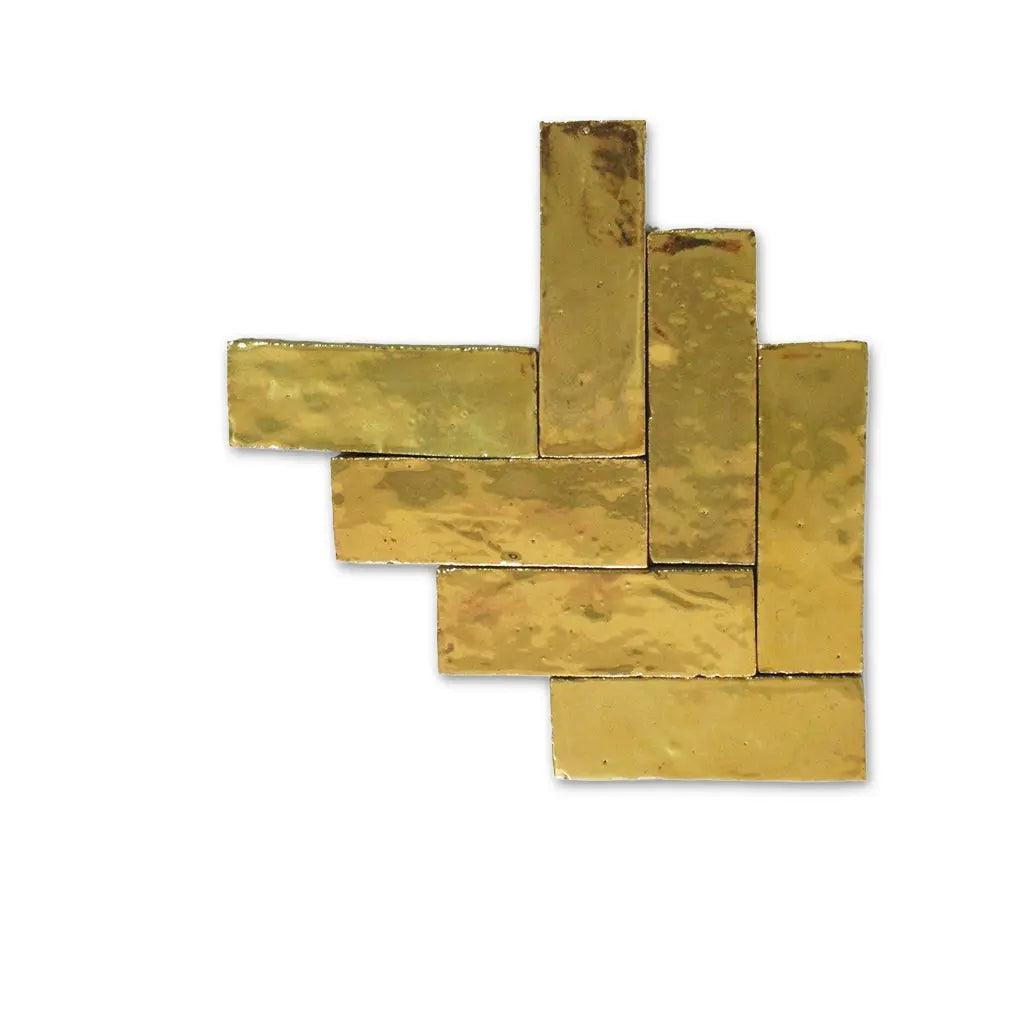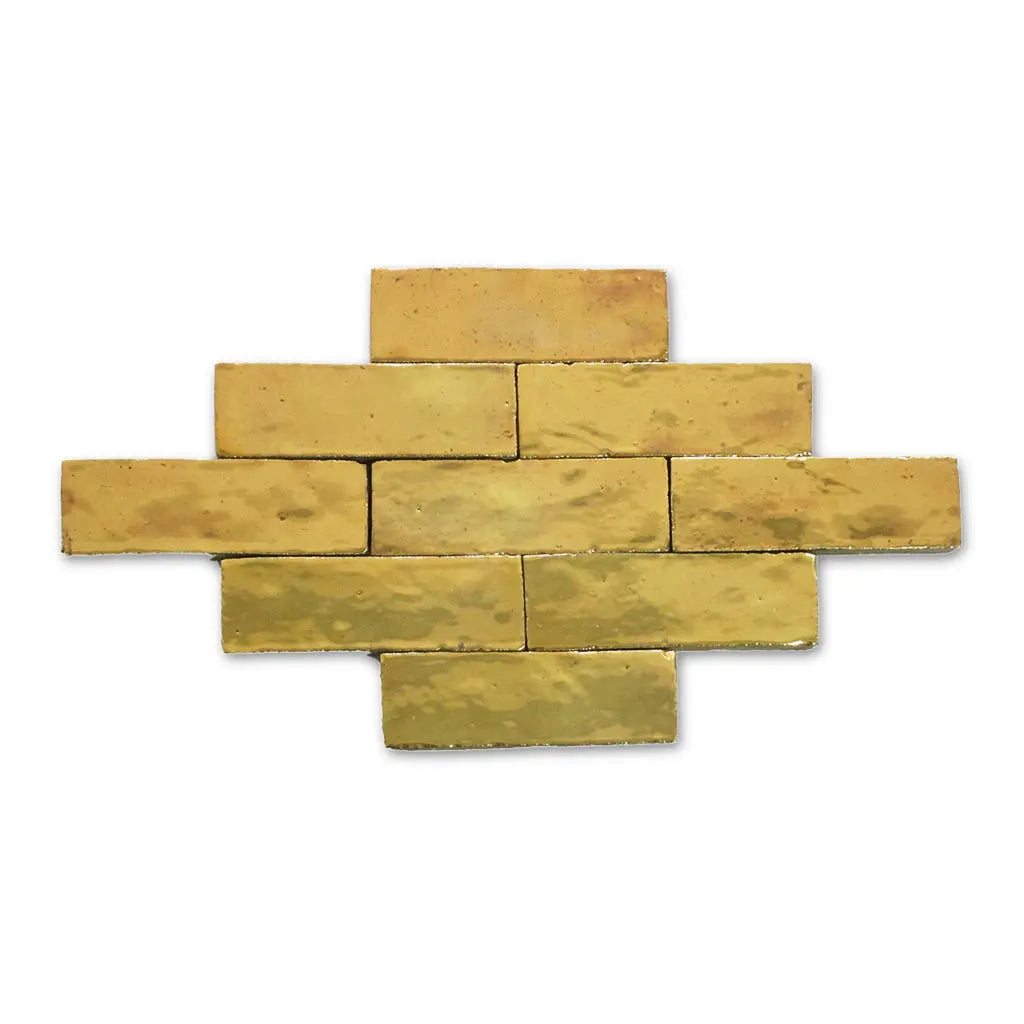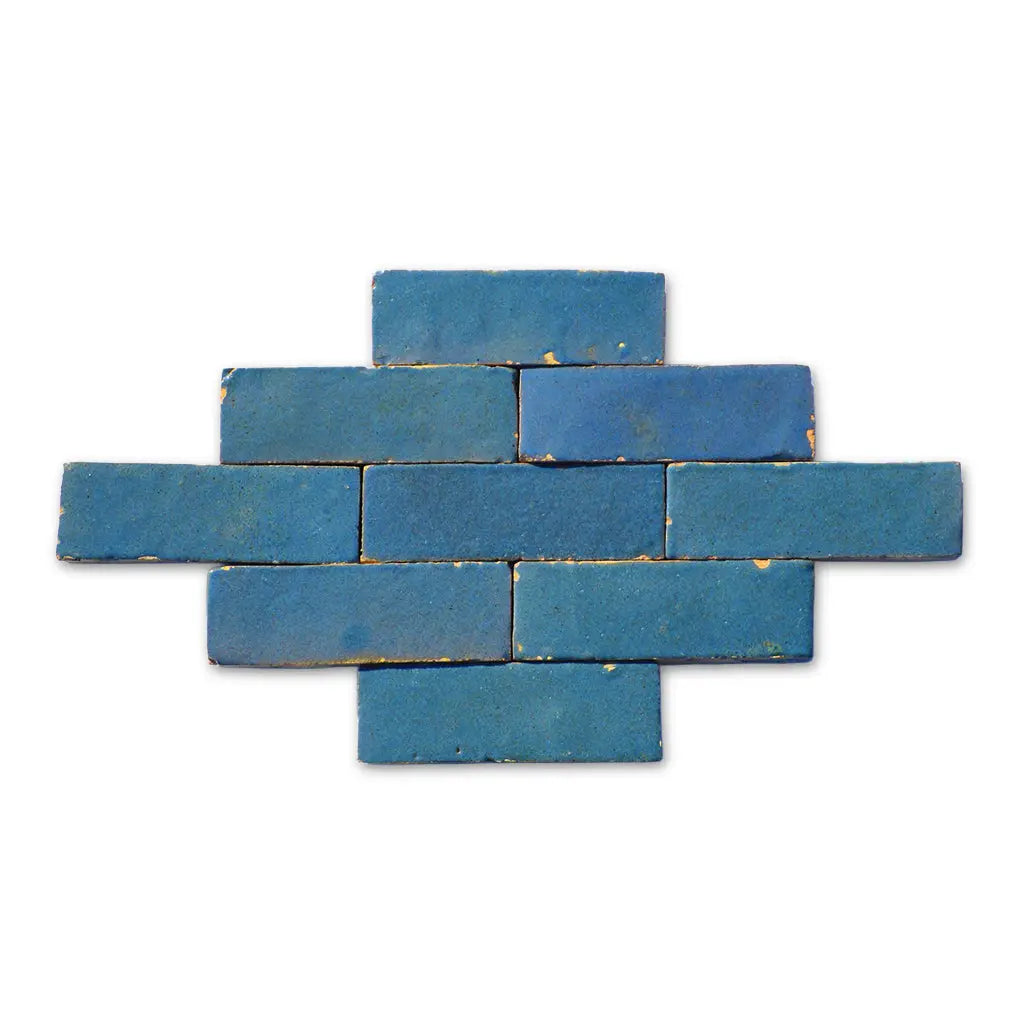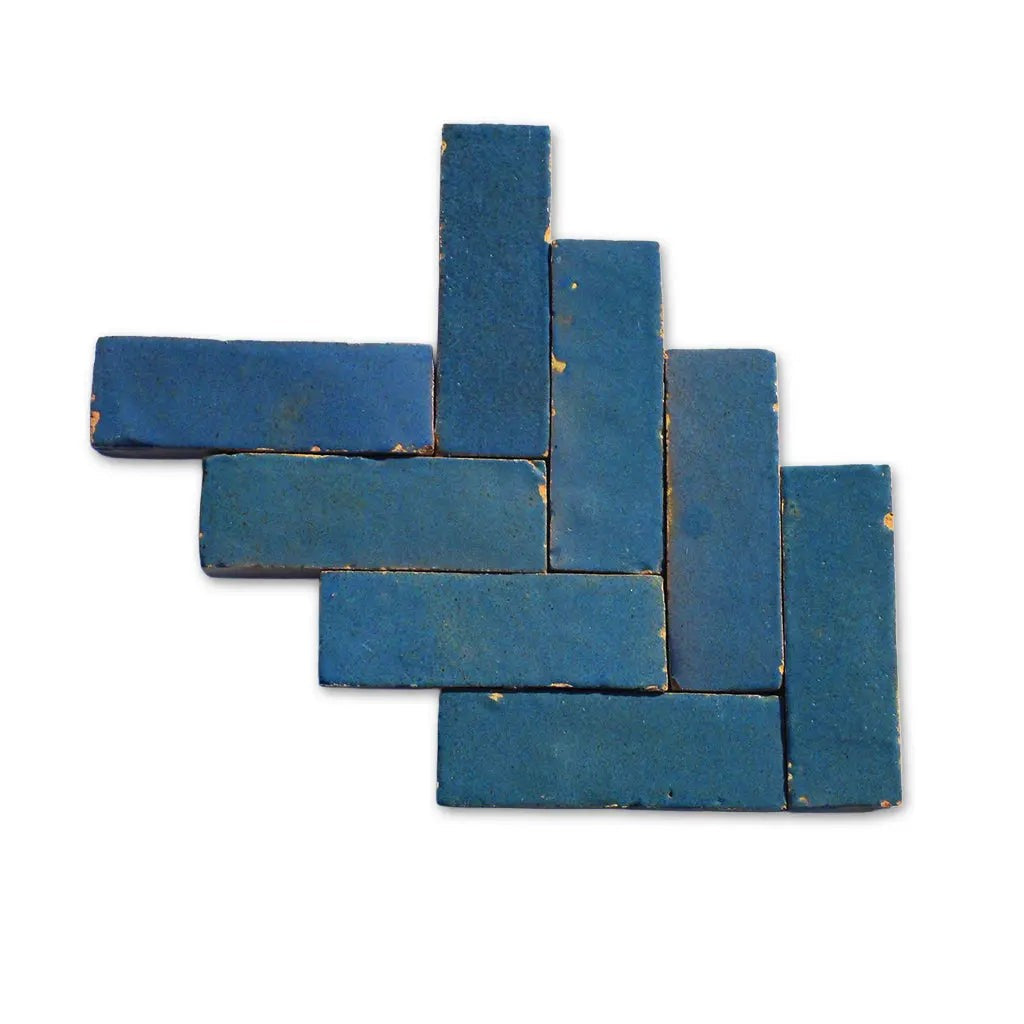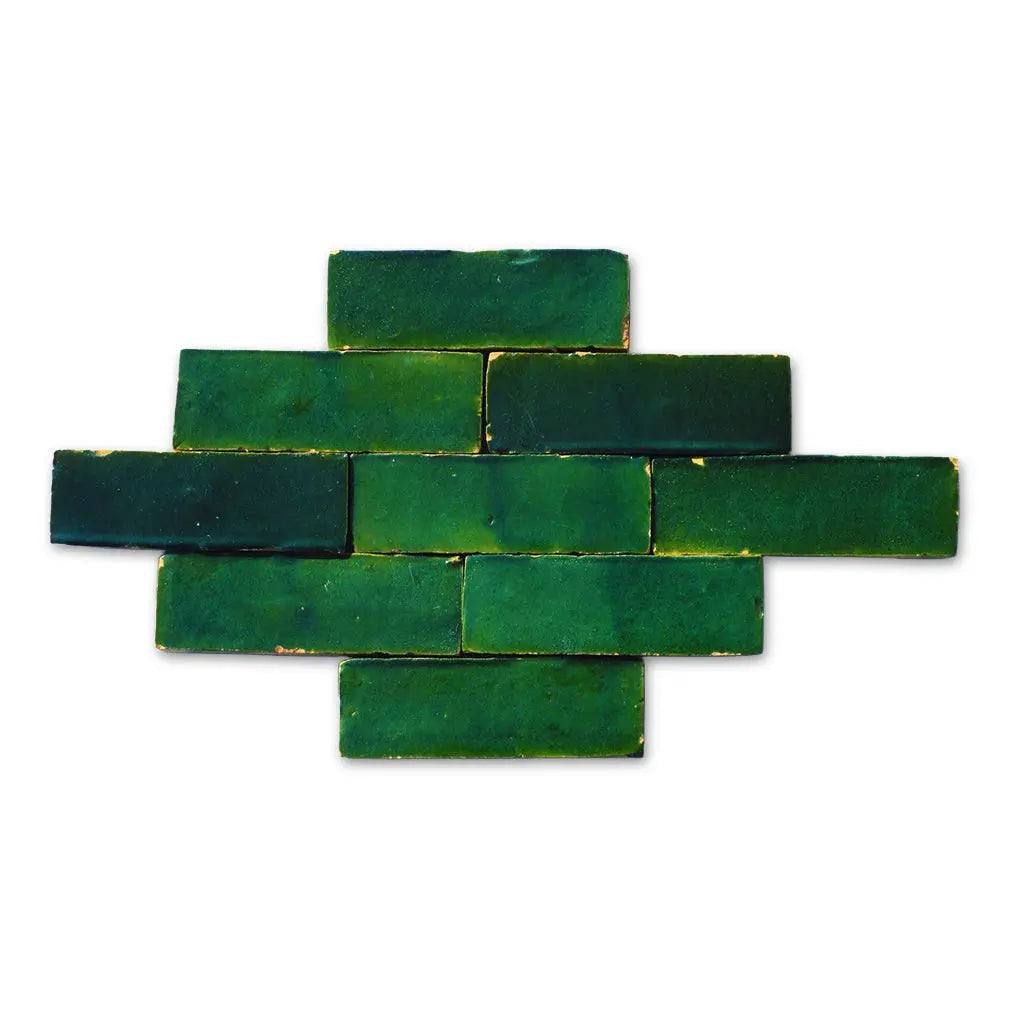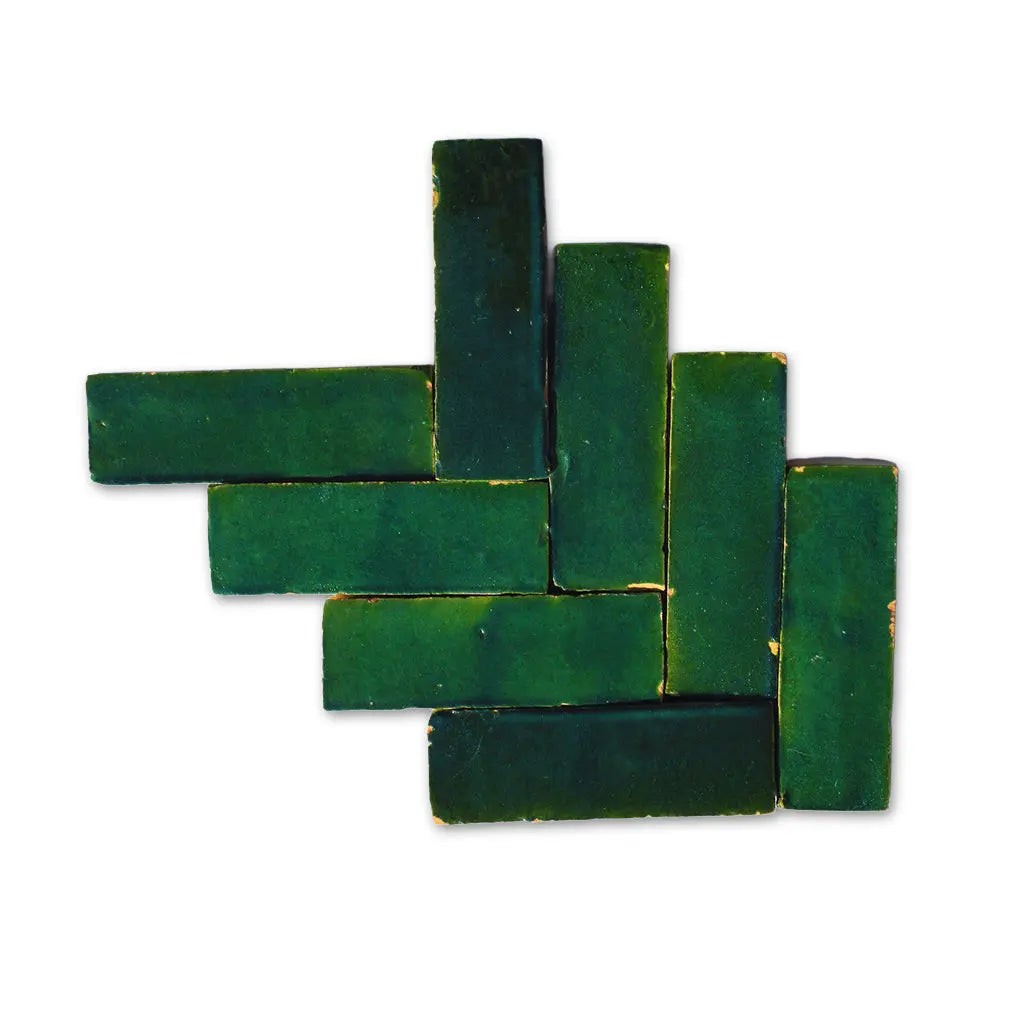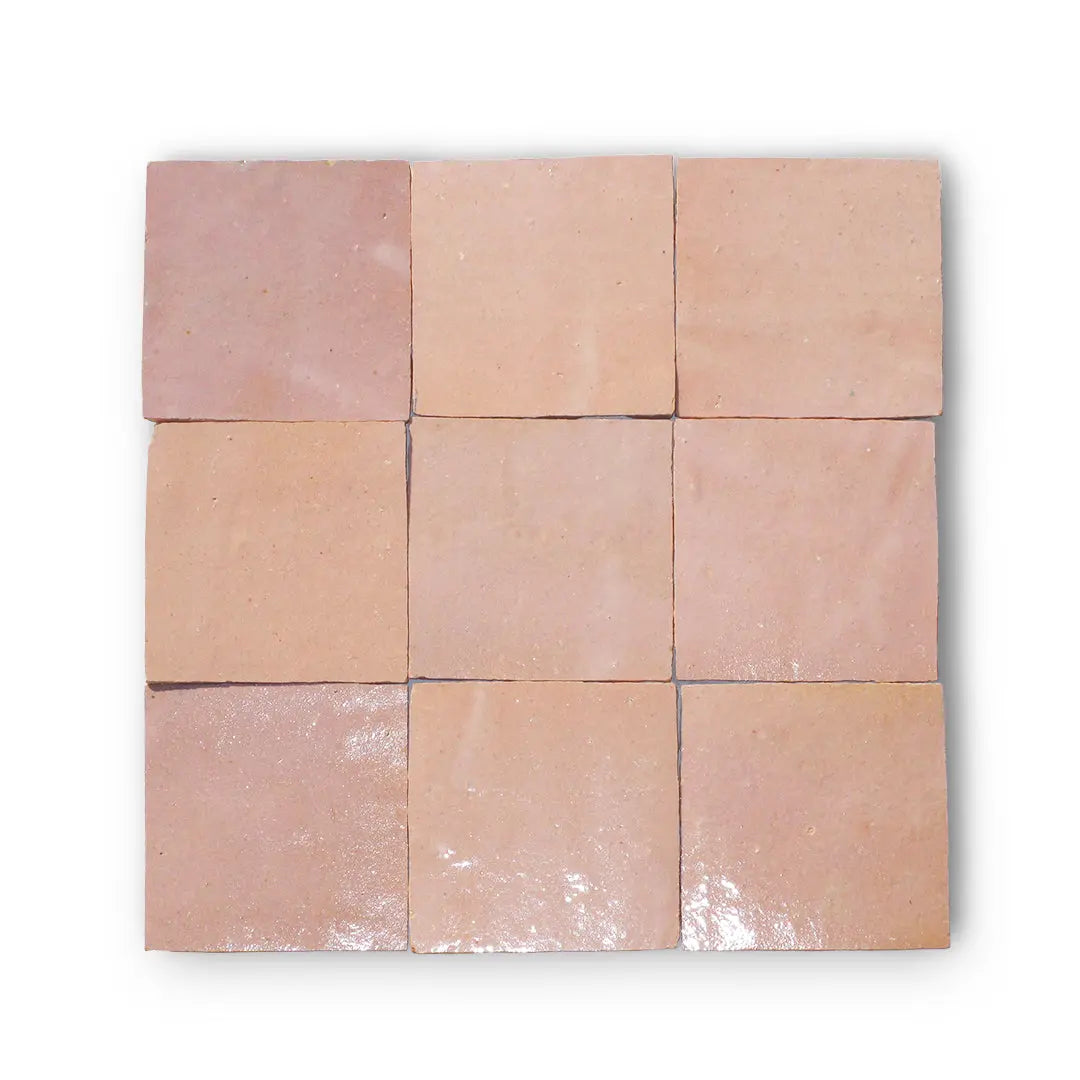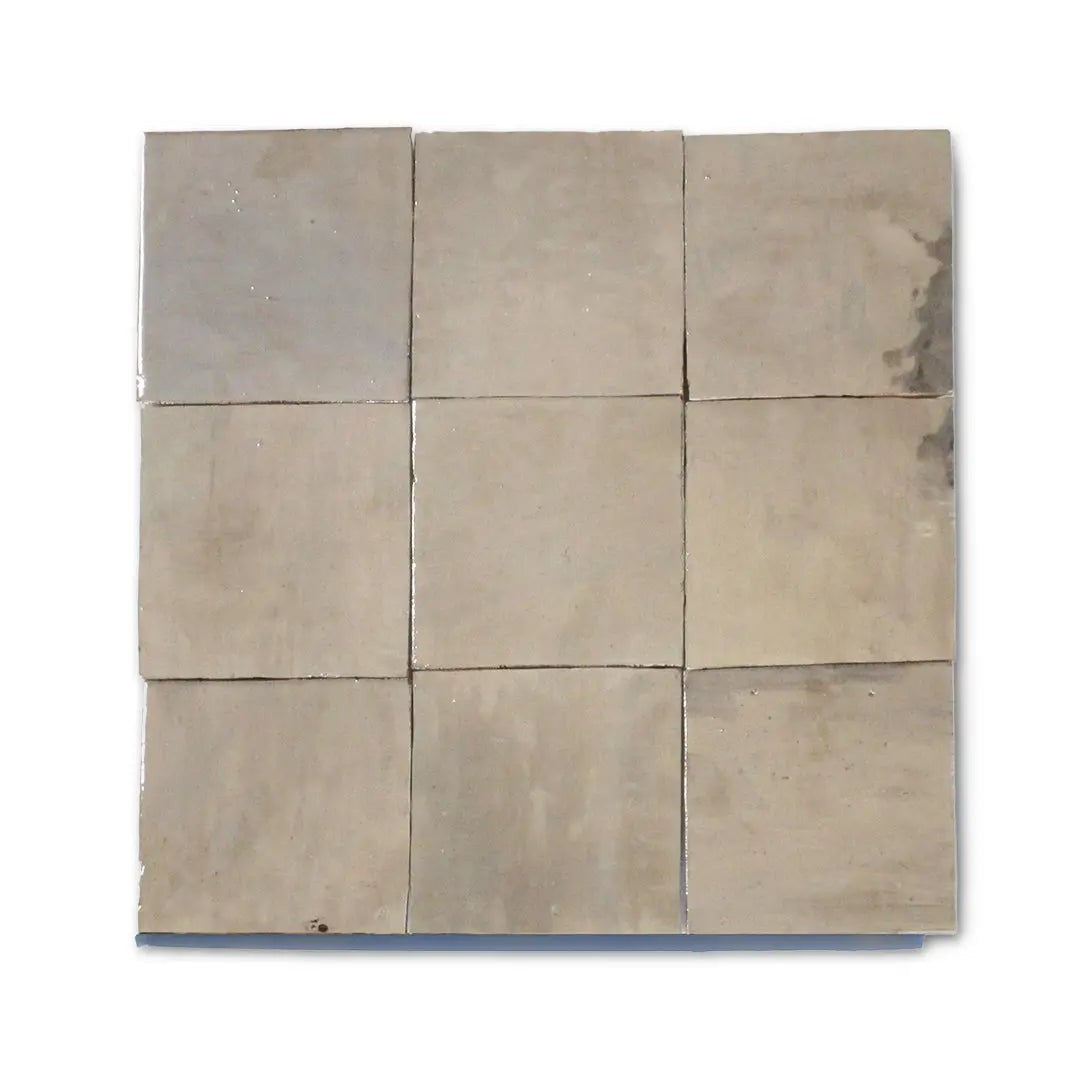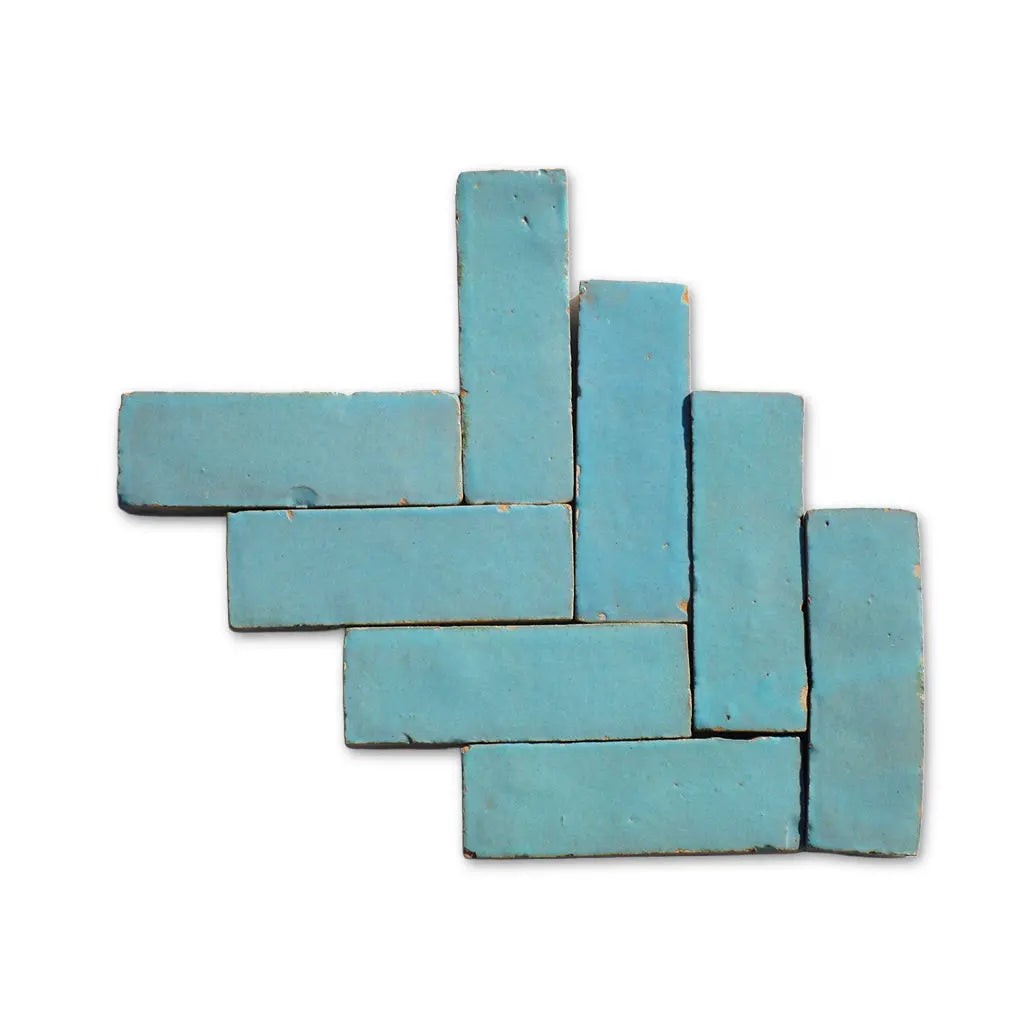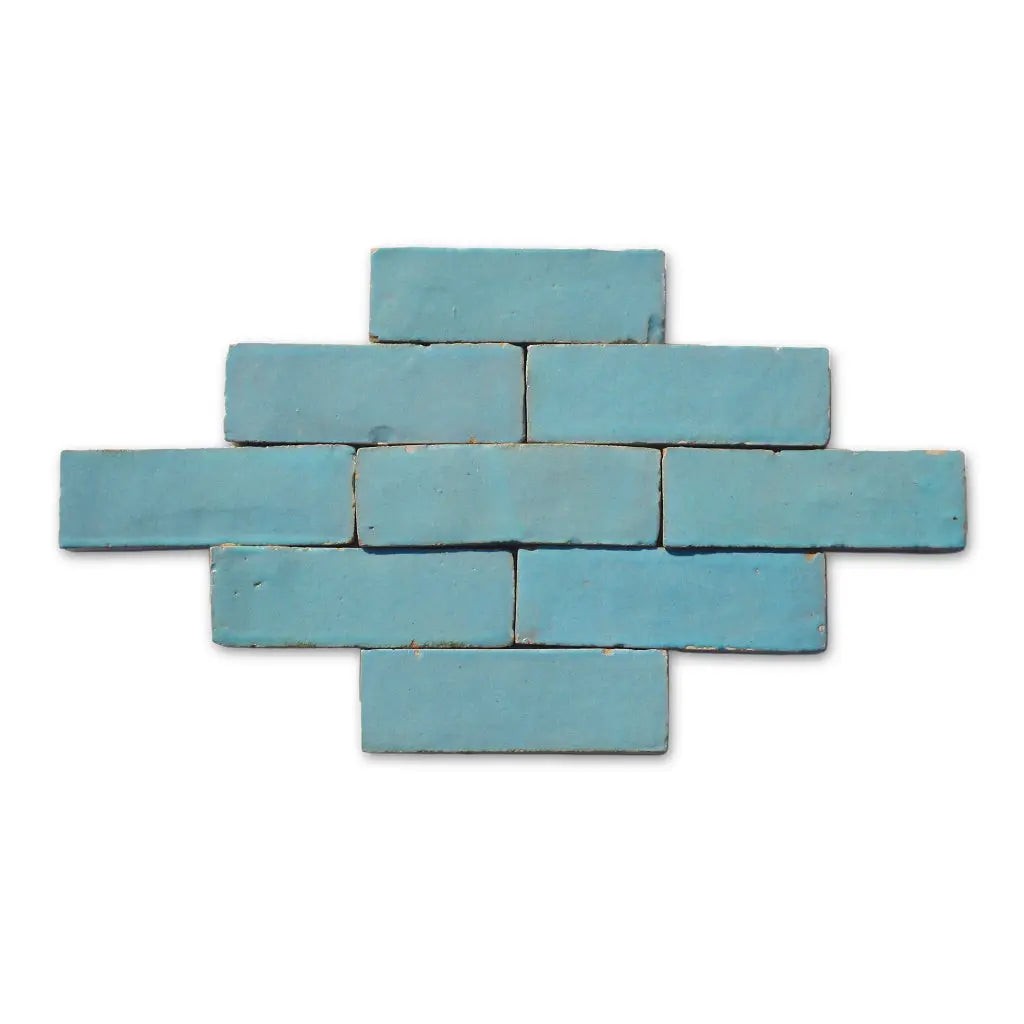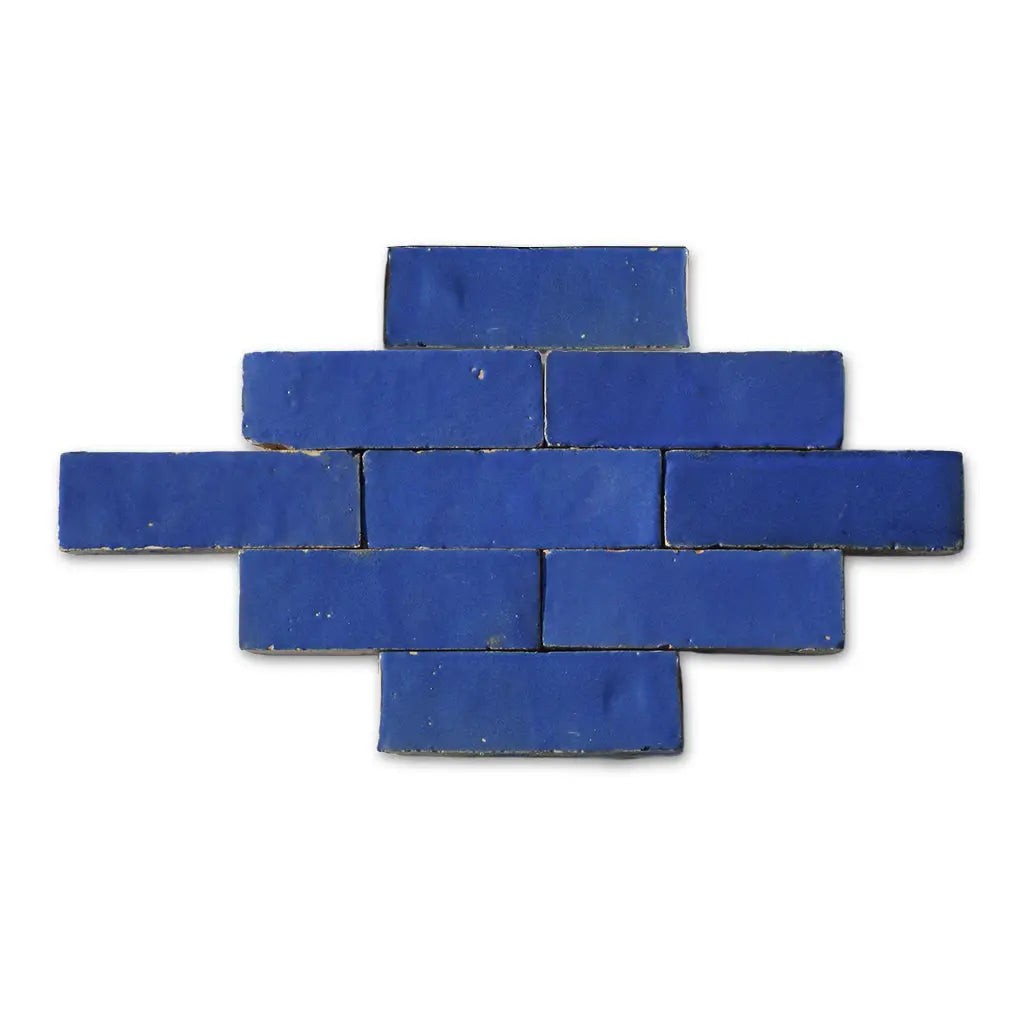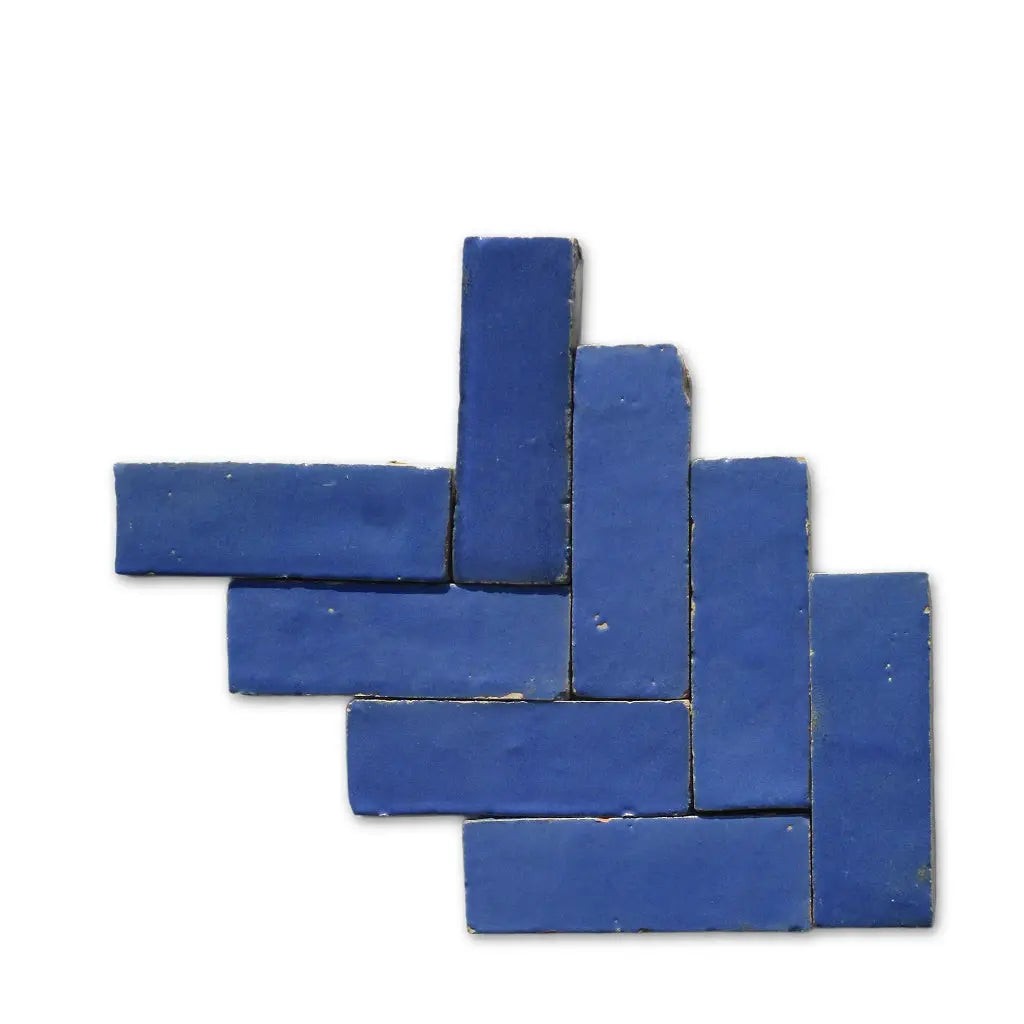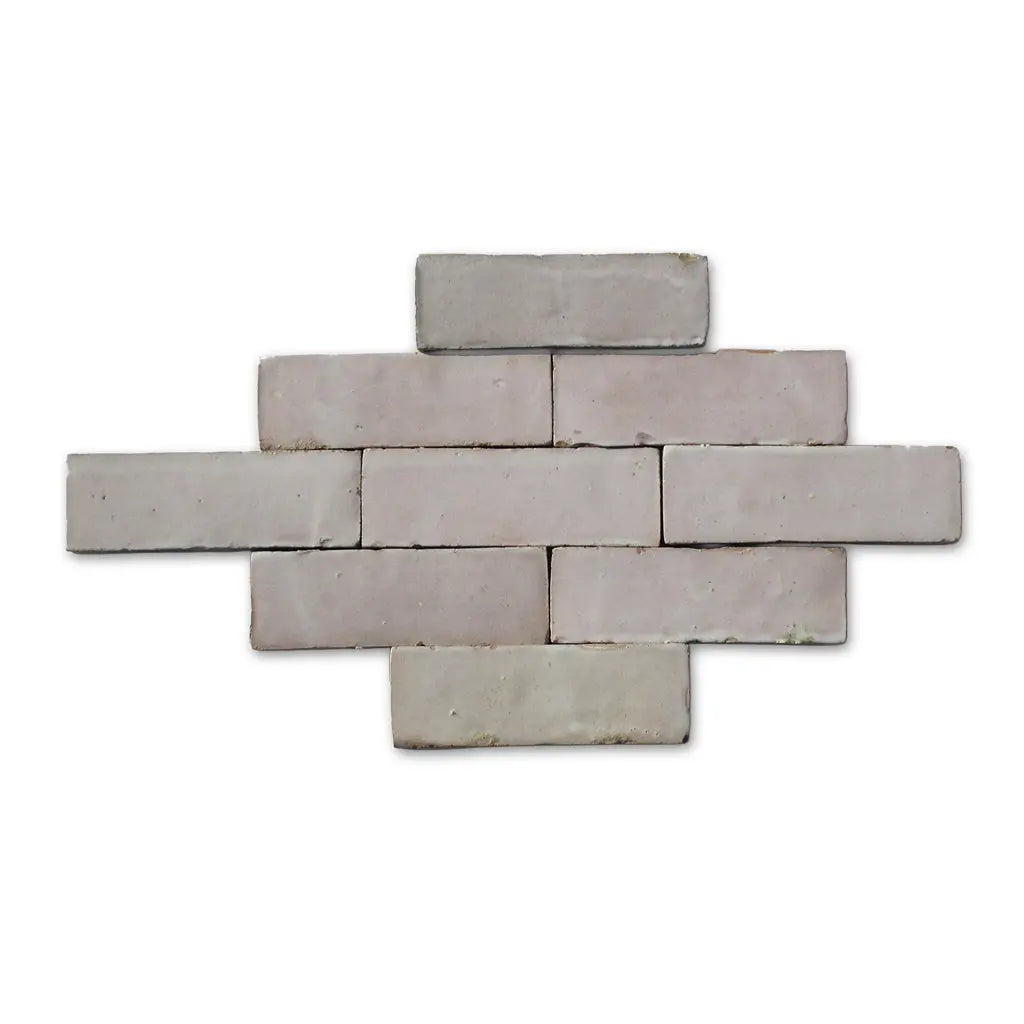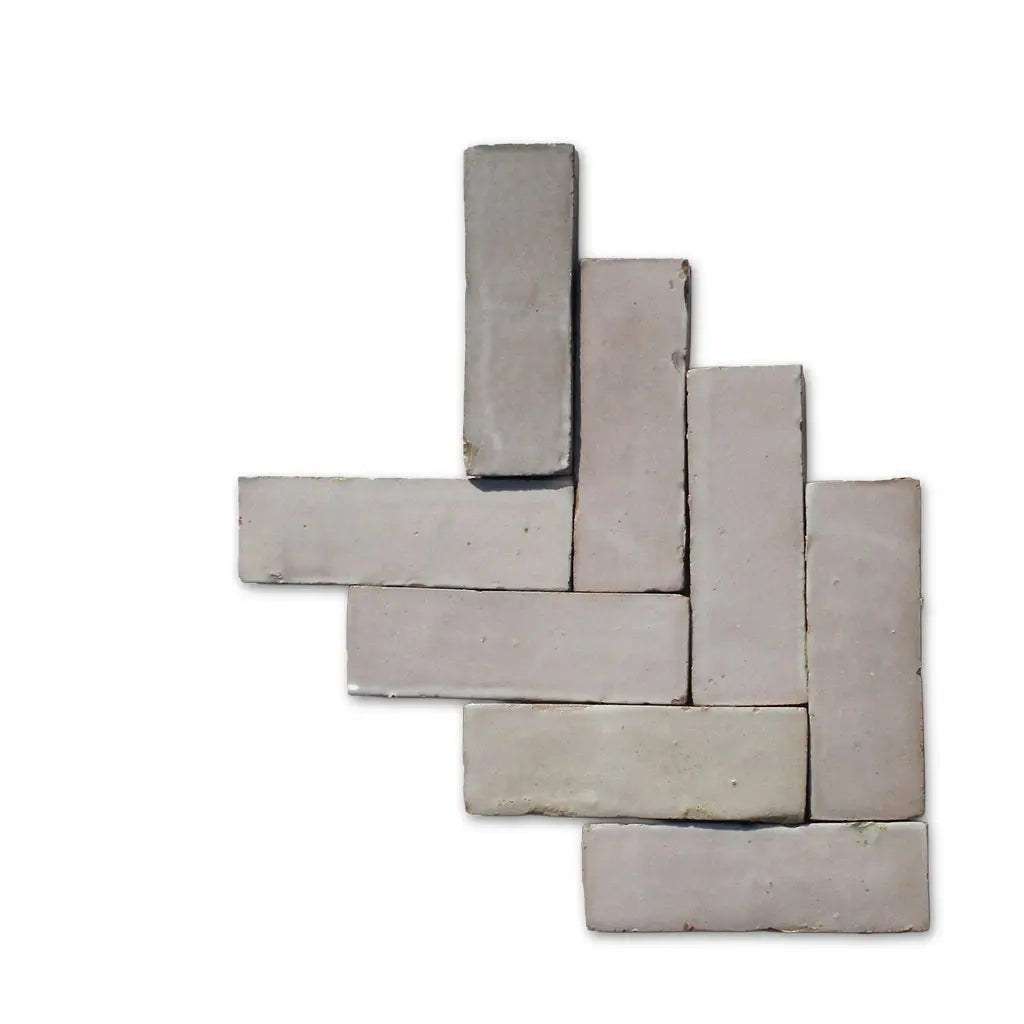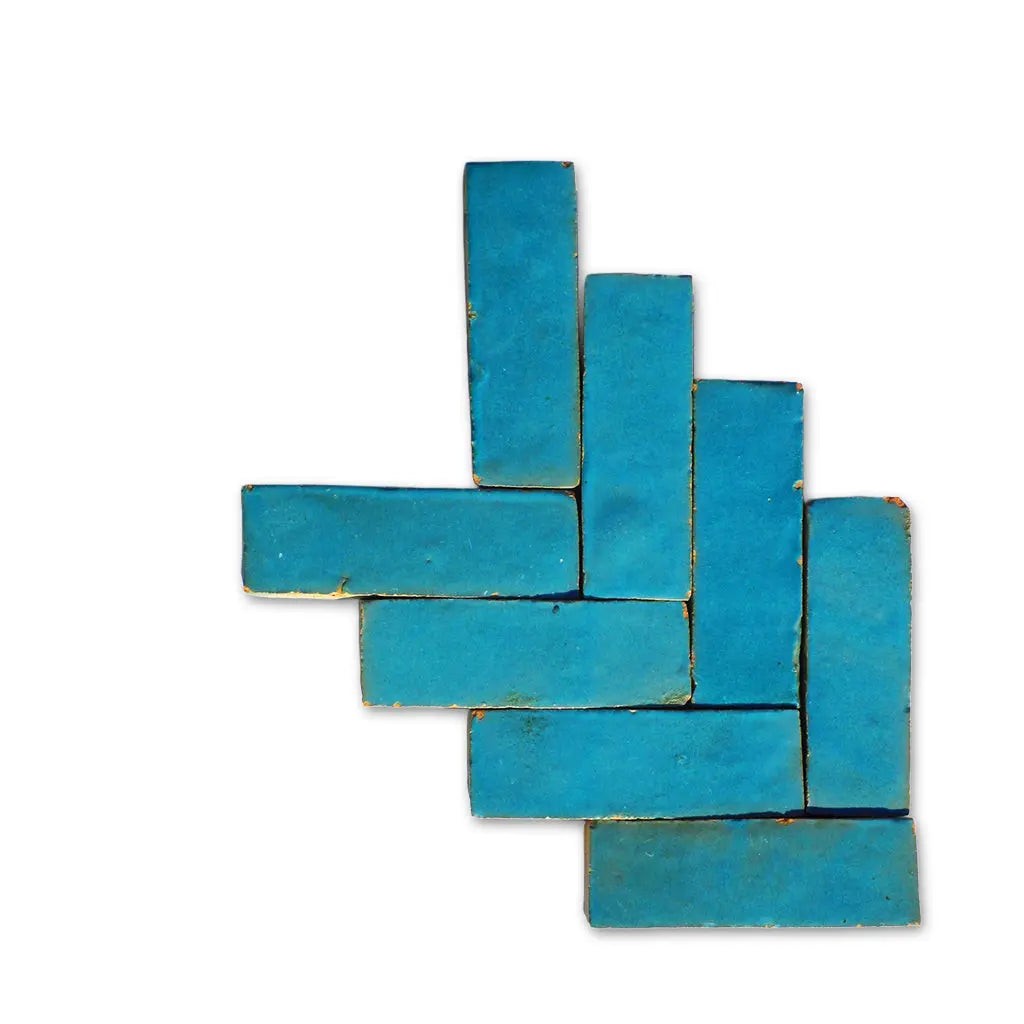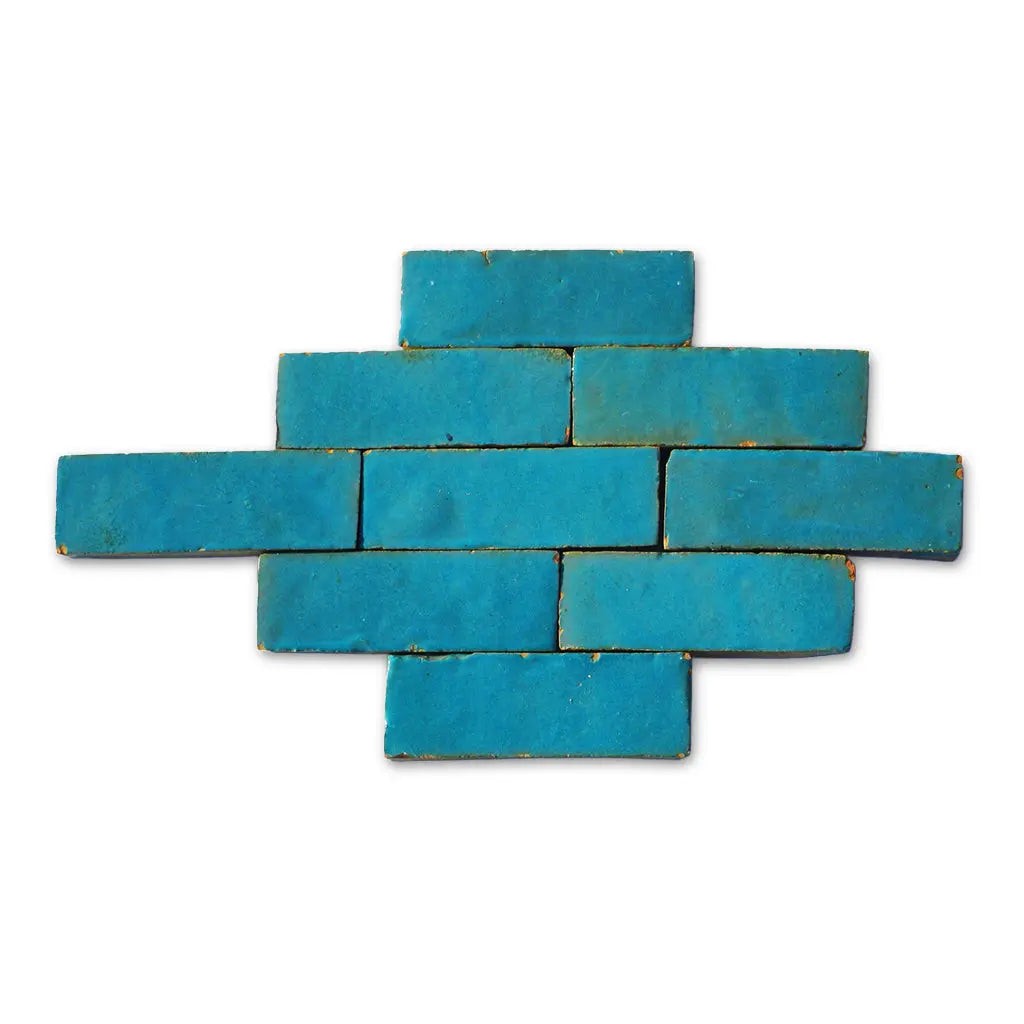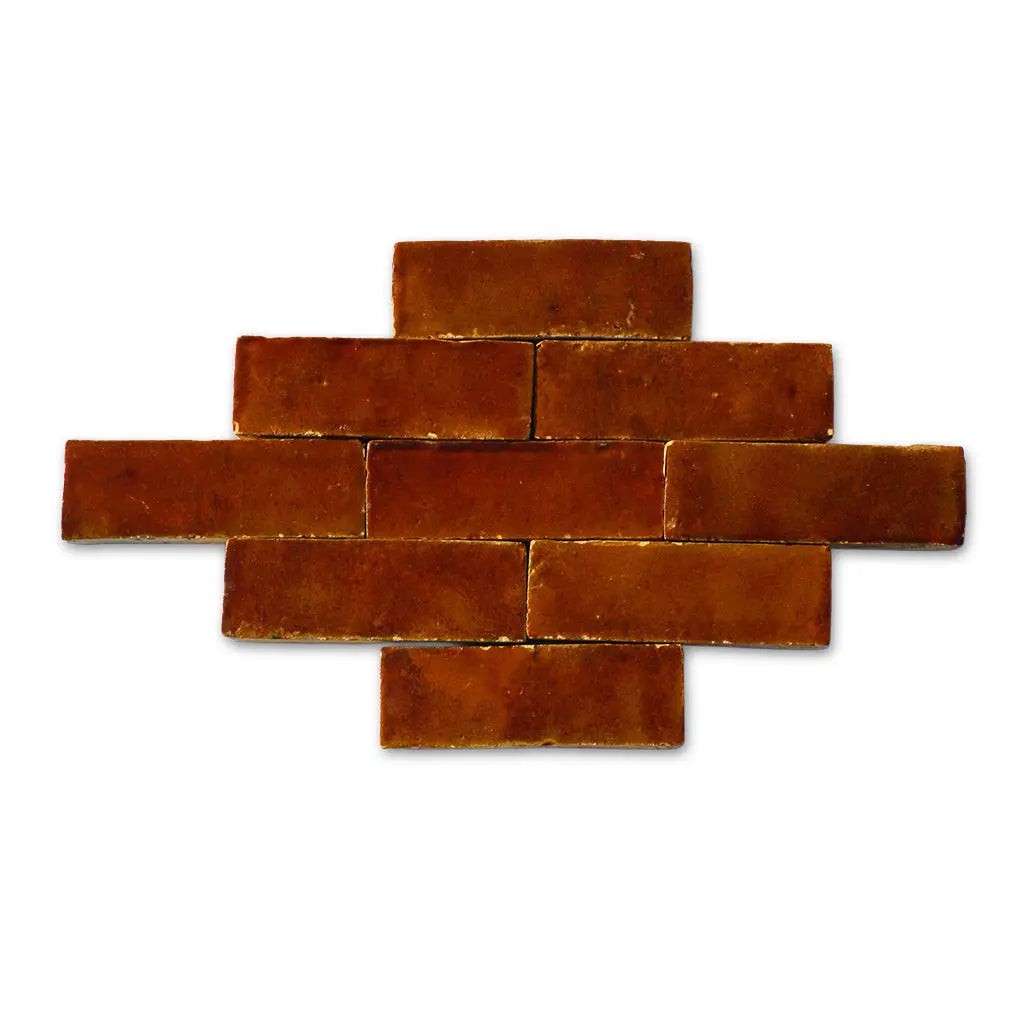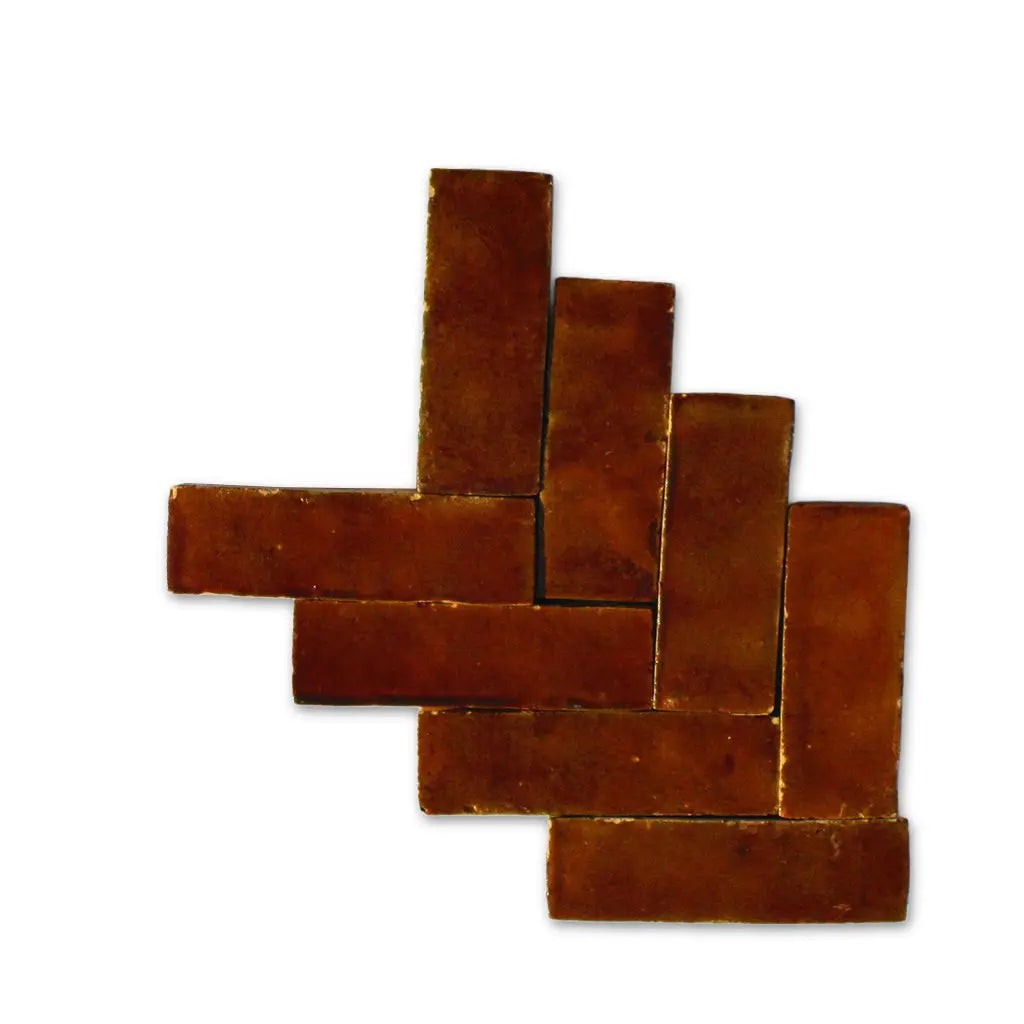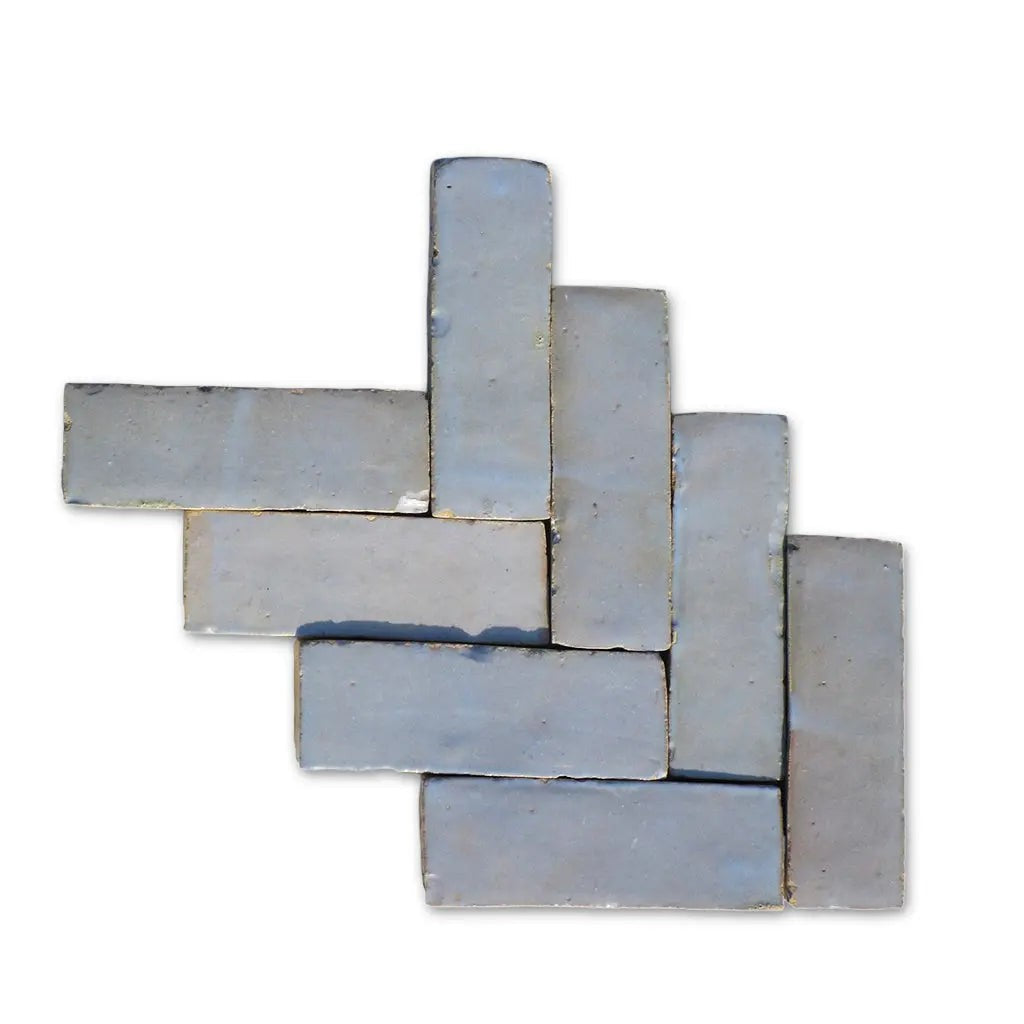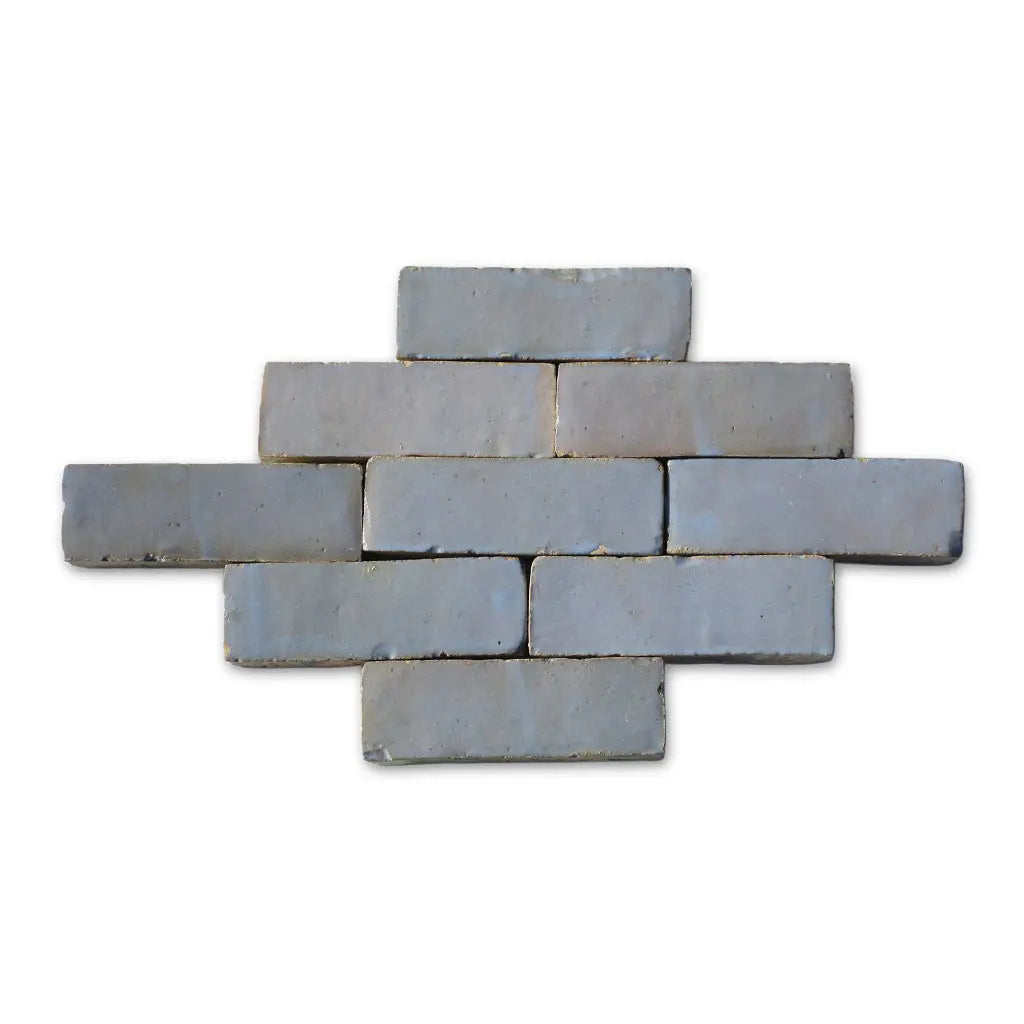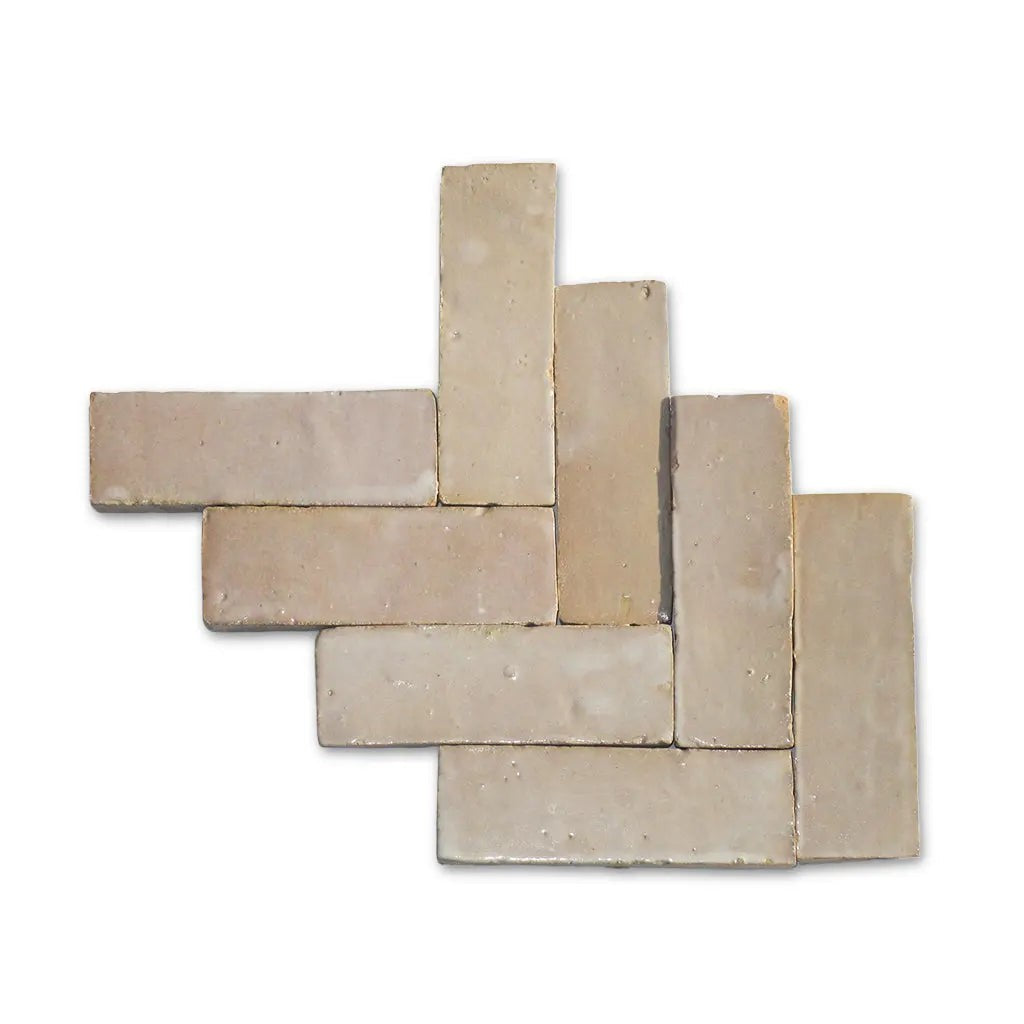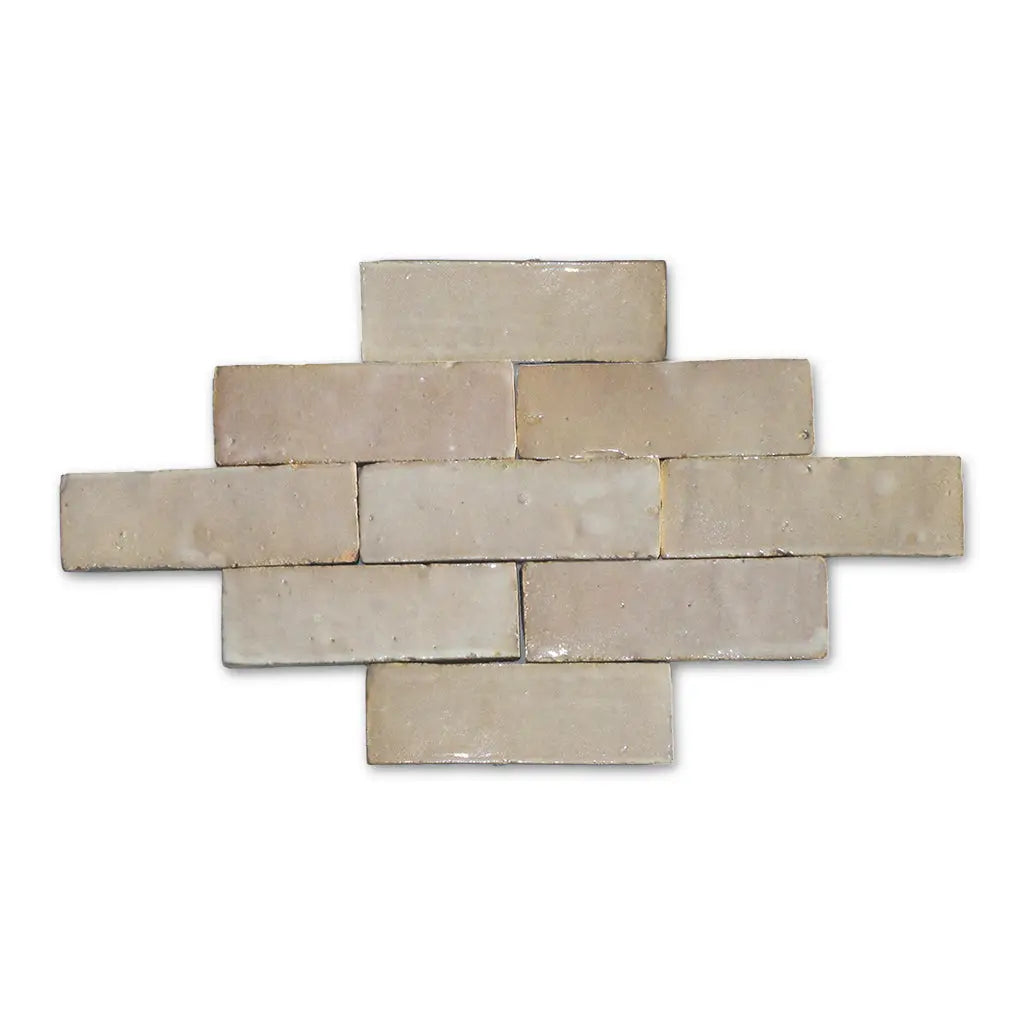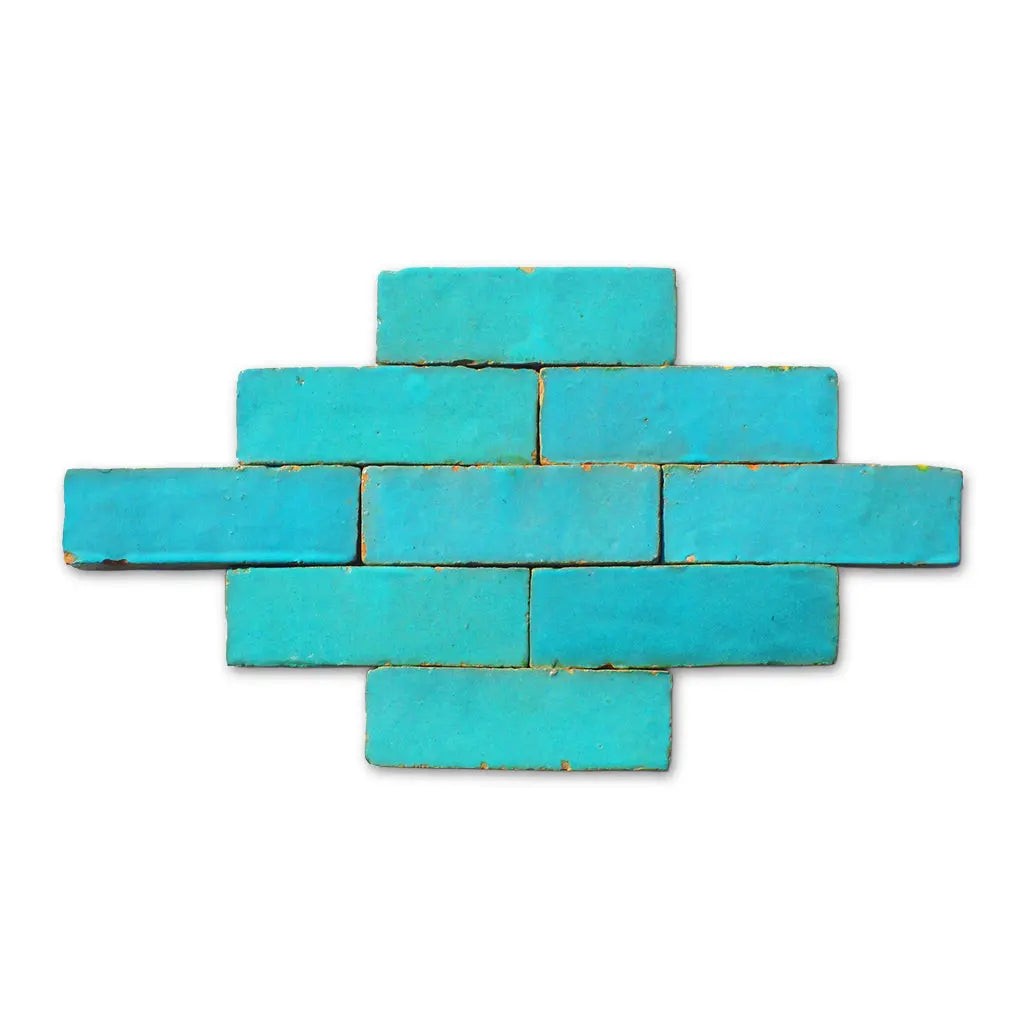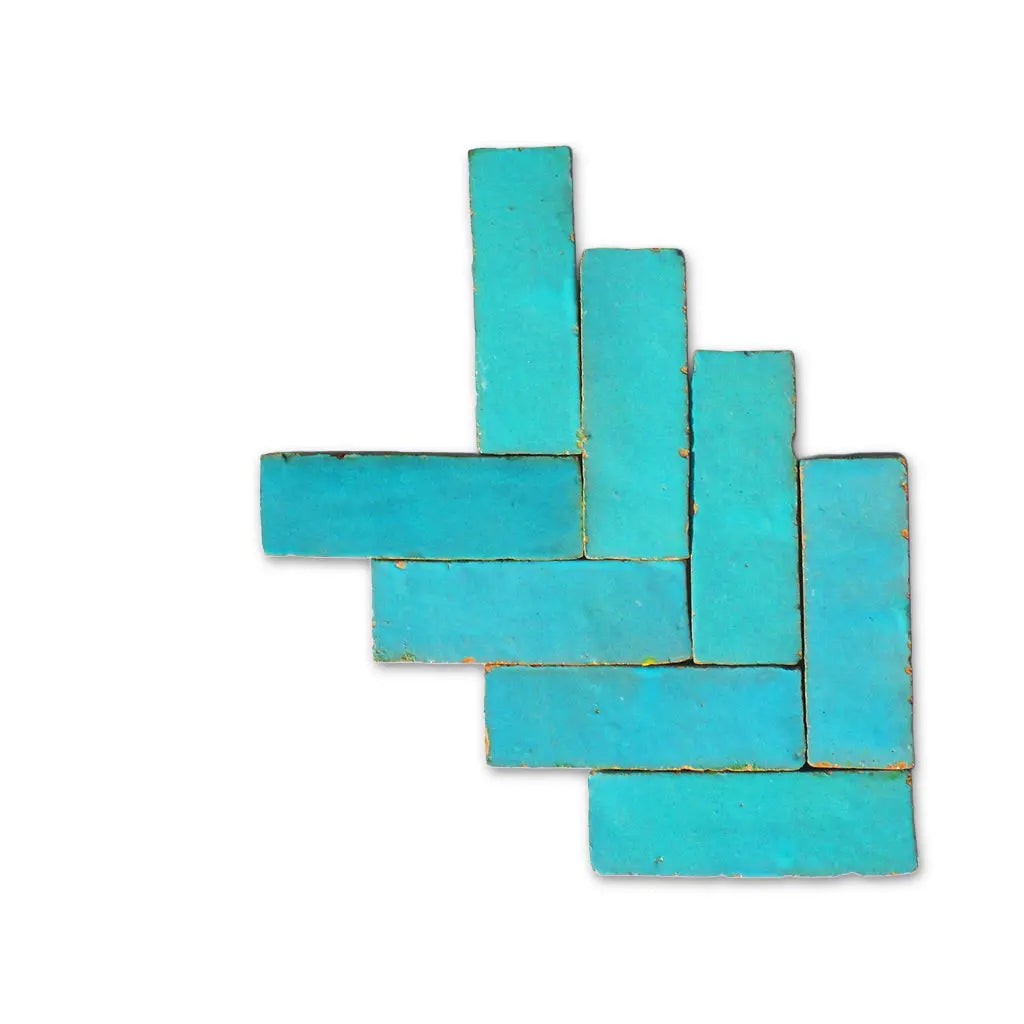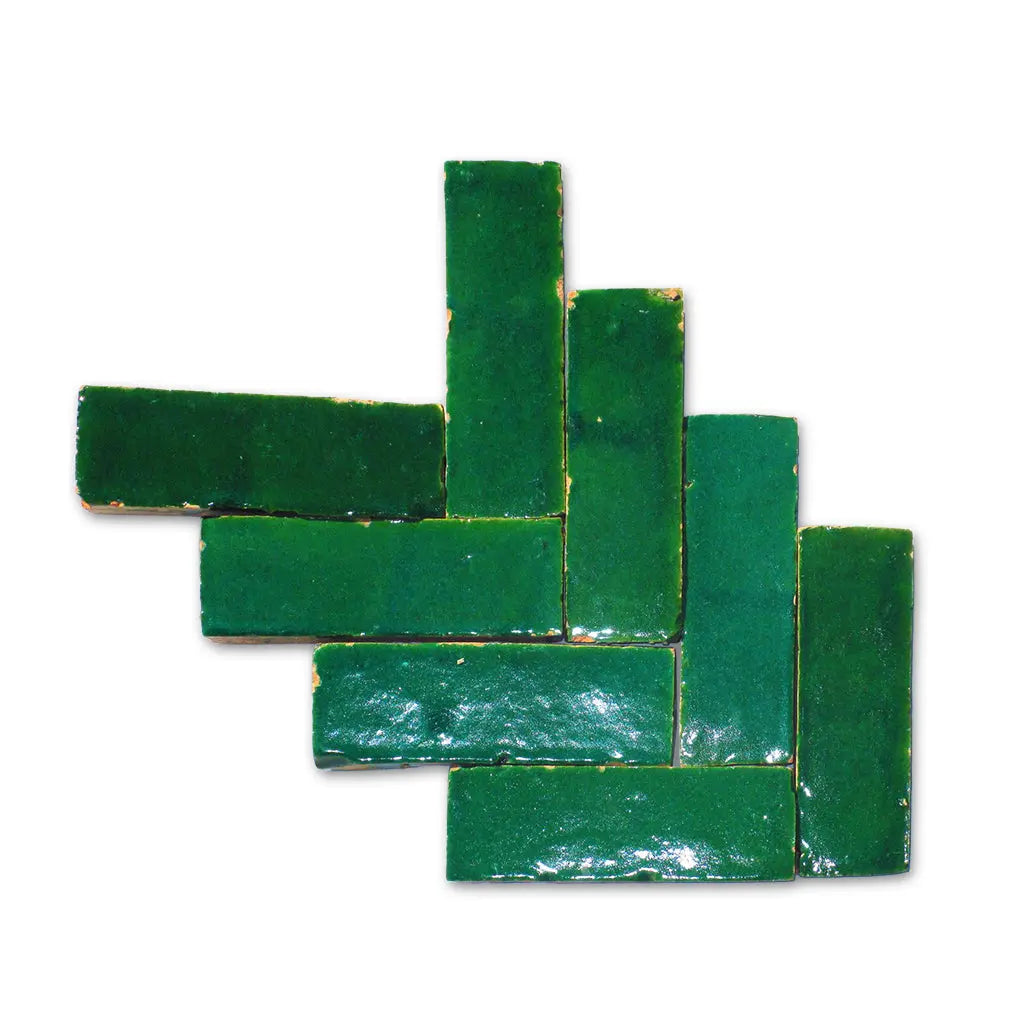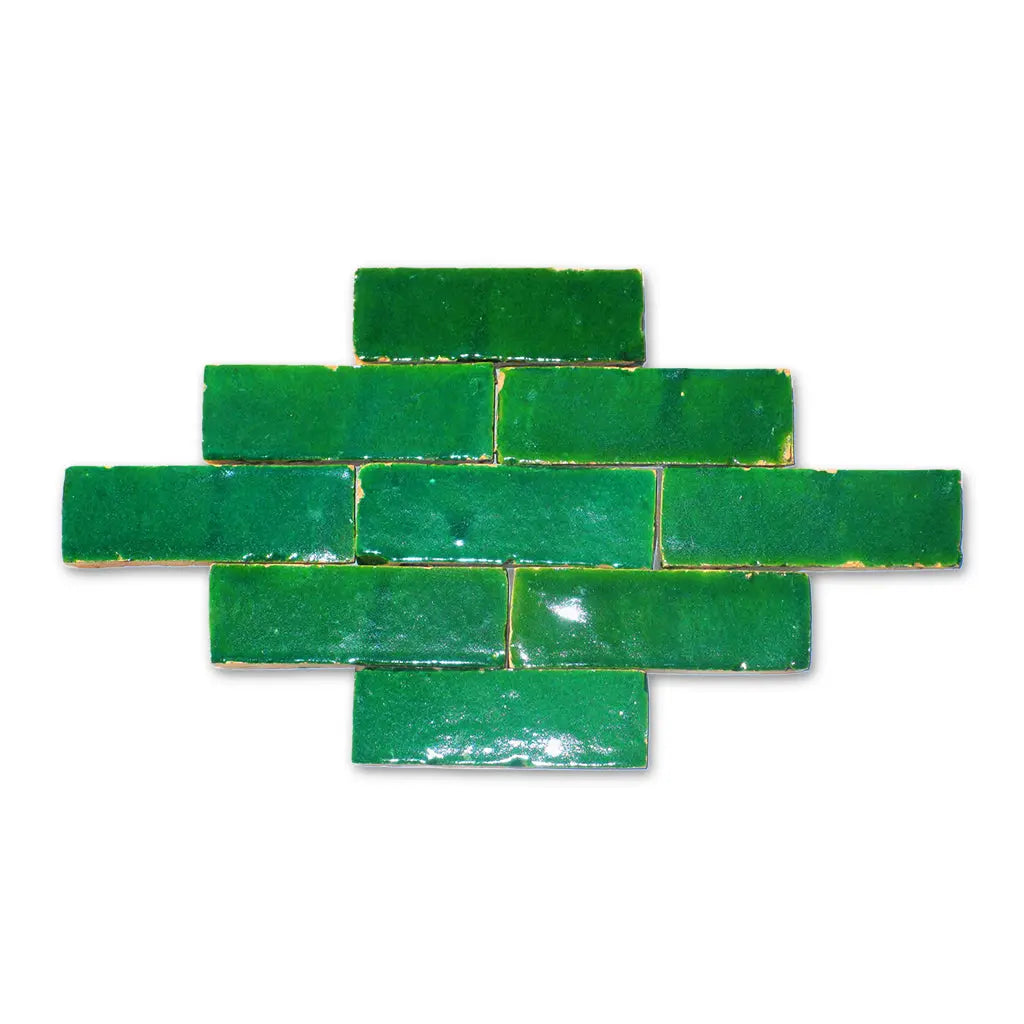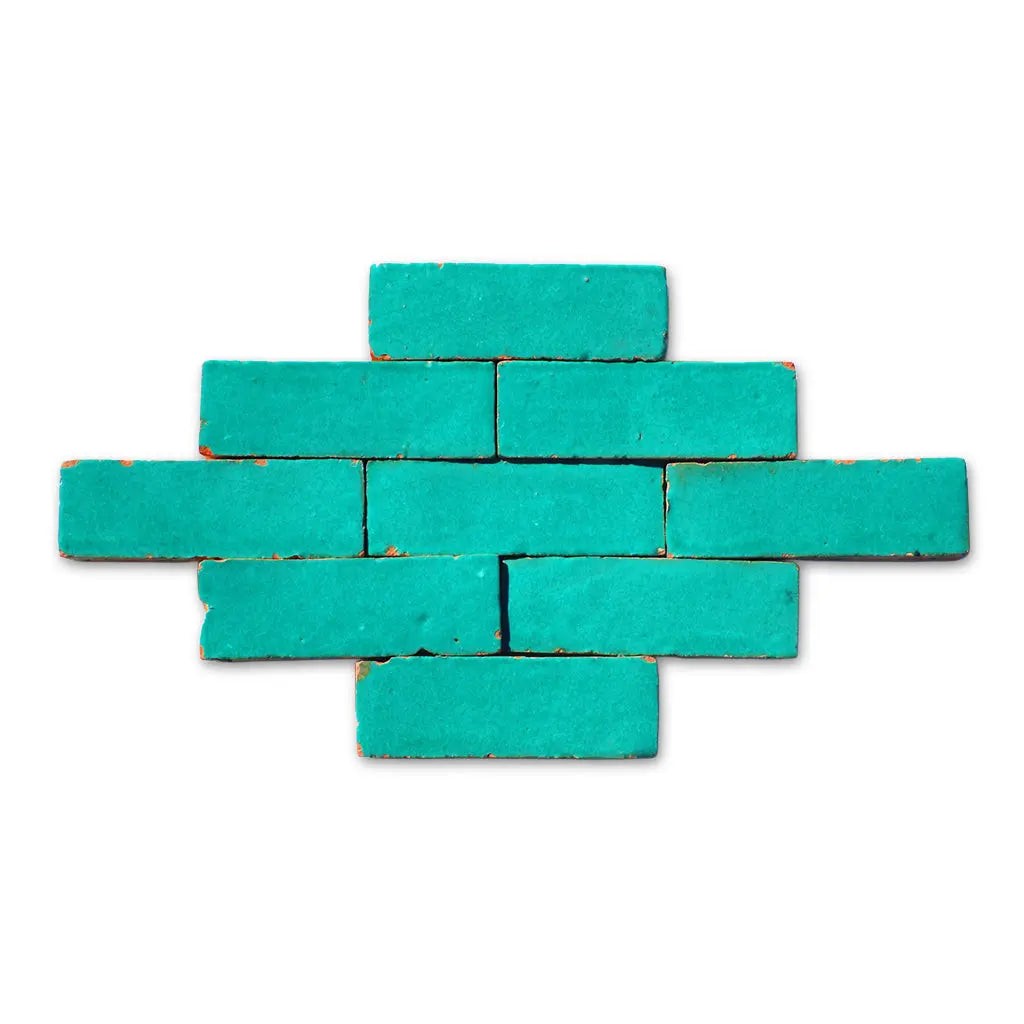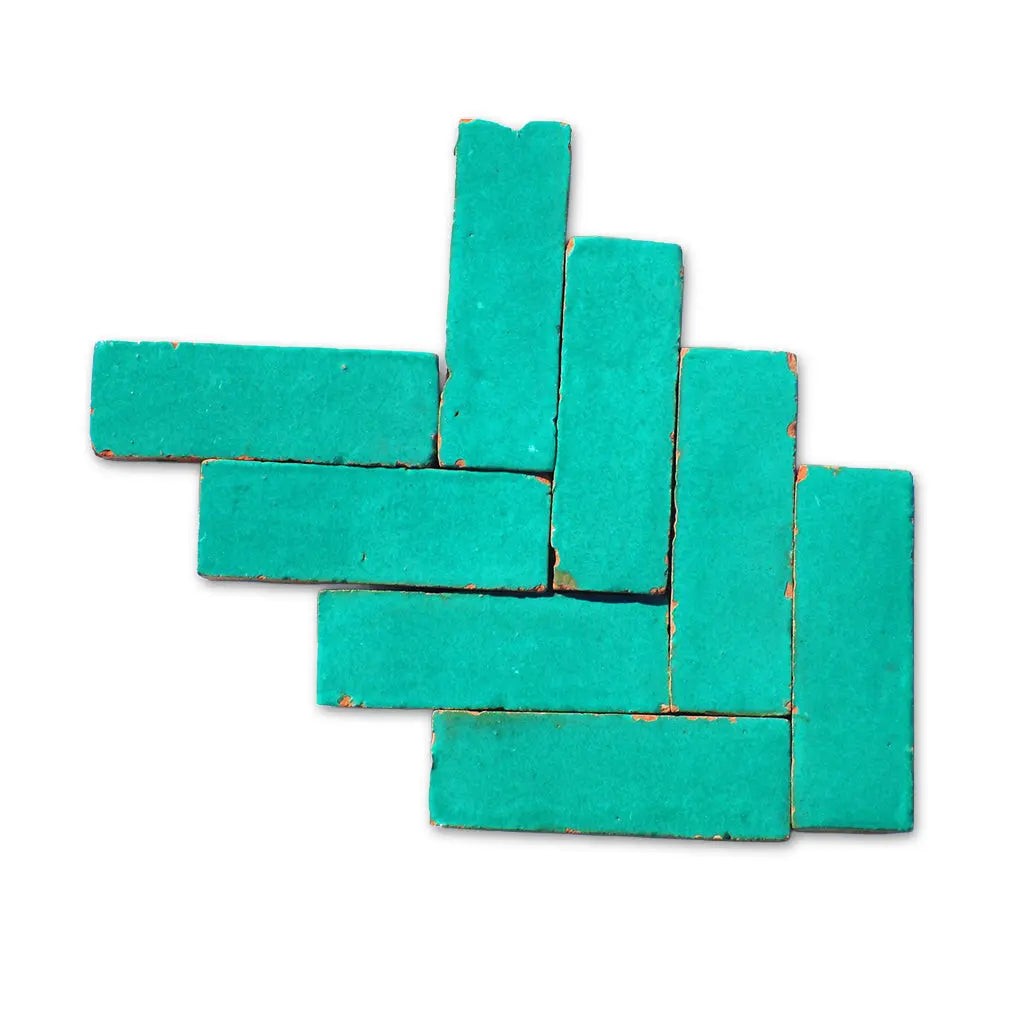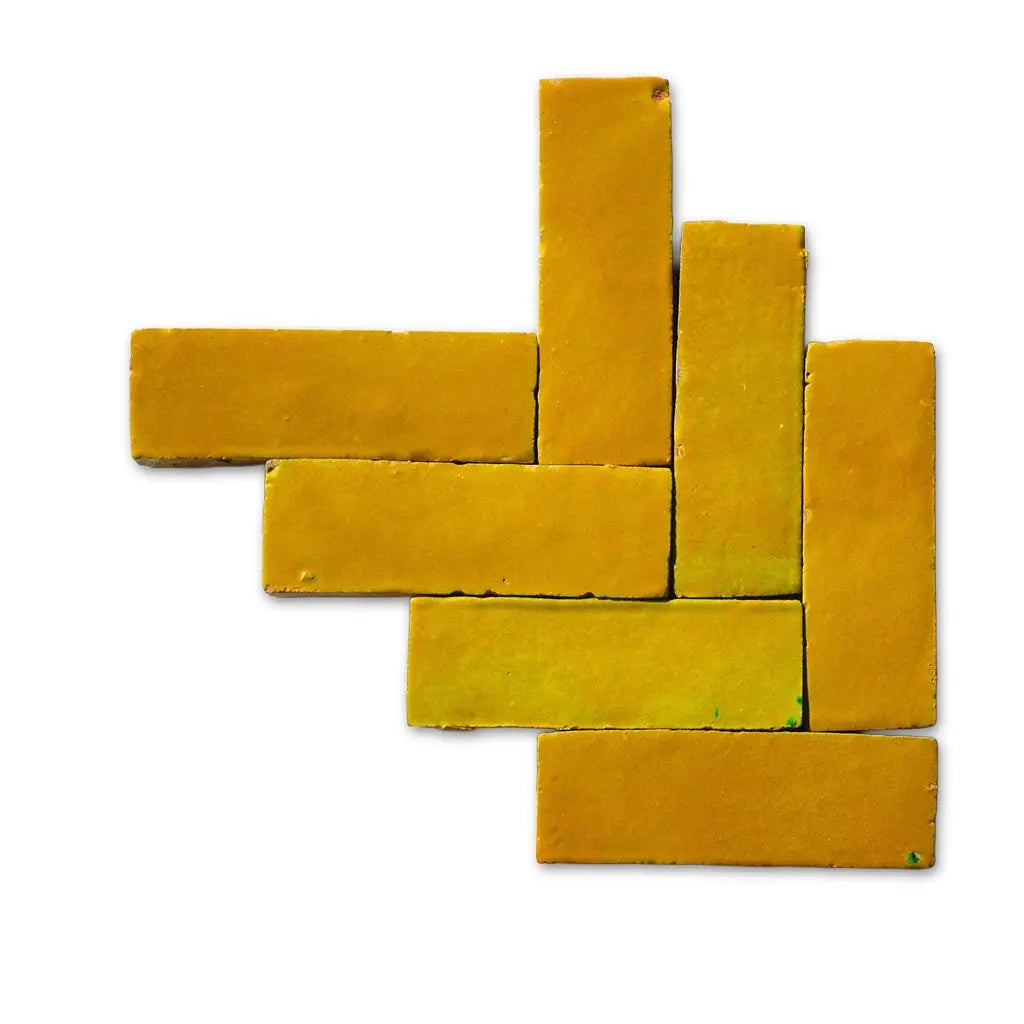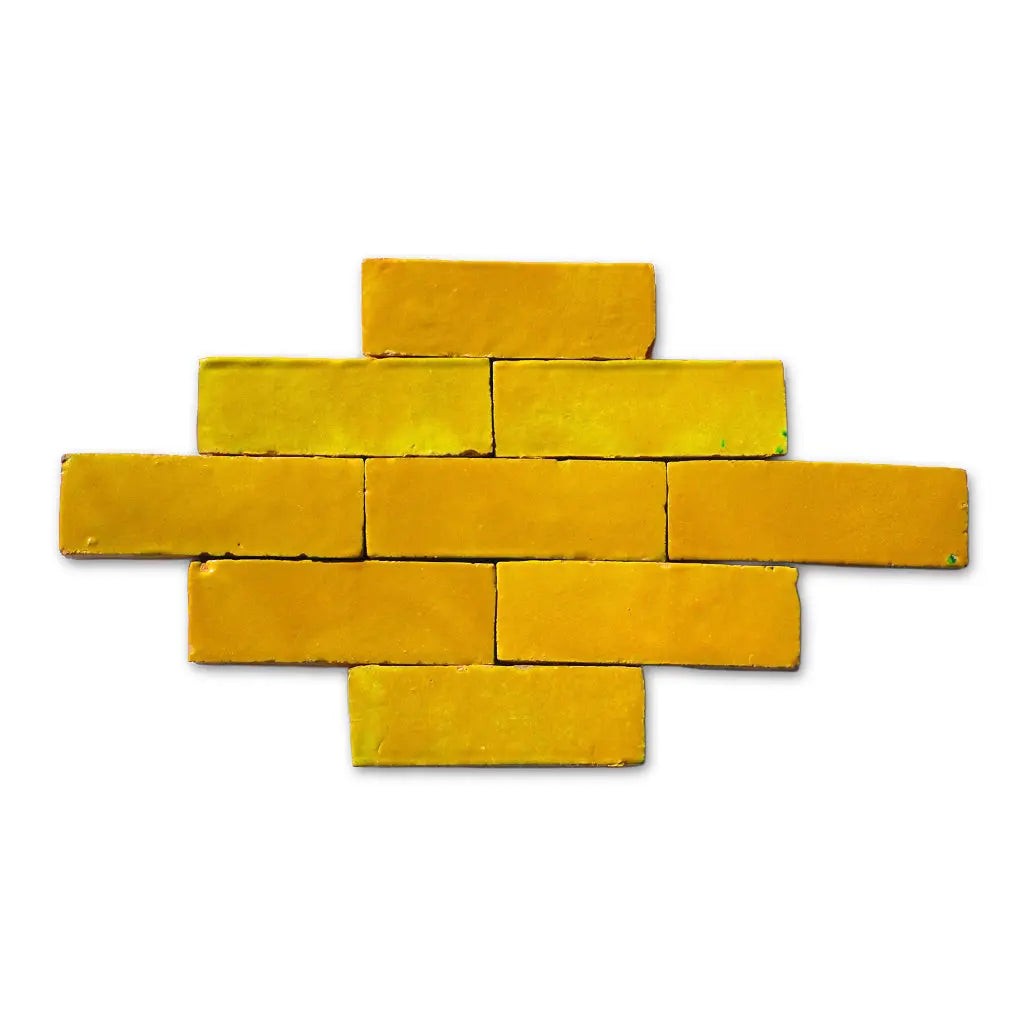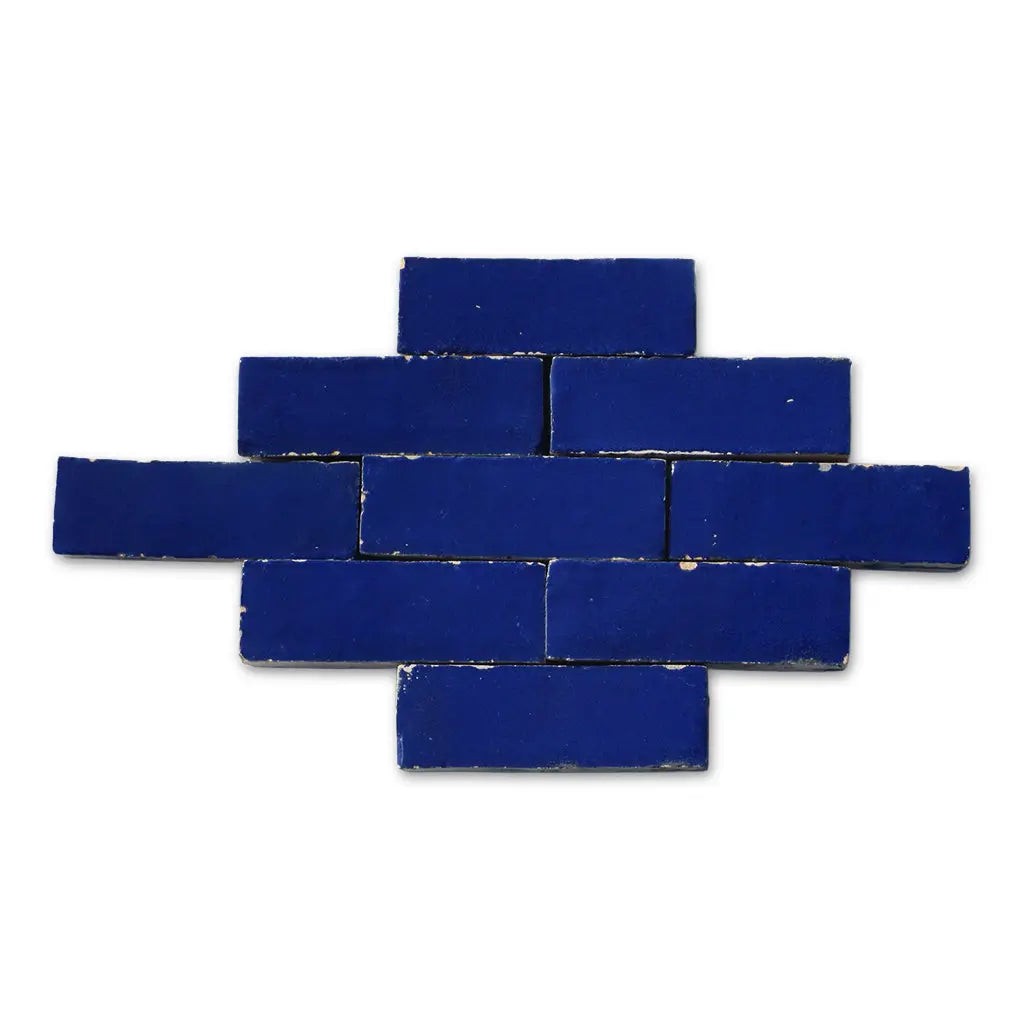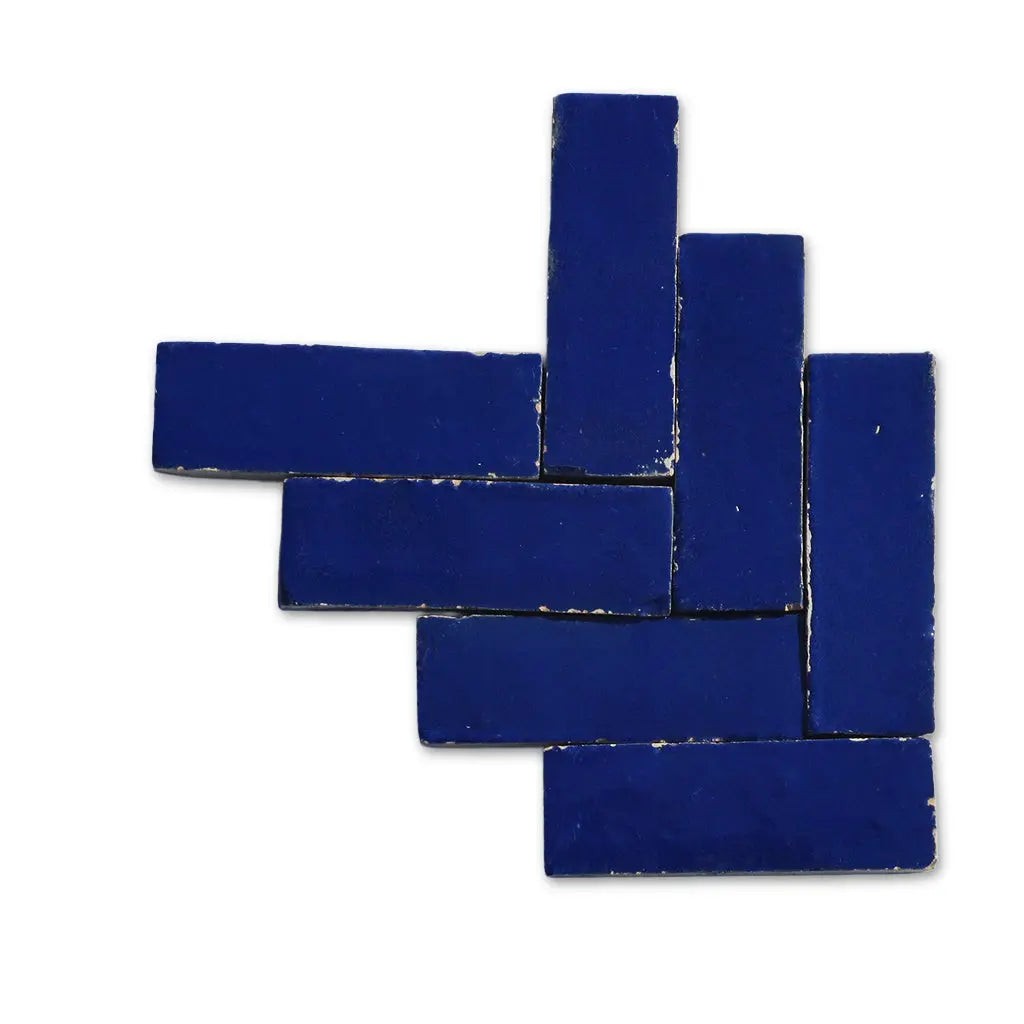-
What defines a Bejmat tile, and where is it most commonly used?
Bejmat is a thick, rectangular brick-like tile, typically measuring around 15cm x 5cm (approx. 6"x2"). While square zellige is often used for walls, Bejmat’s greater thickness and robust nature make it exceptionally well-suited for flooring. It is a popular choice for creating stunning floors in entryways, kitchens, and patios, as well as for wall applications.
-
How do the handmade variations of Bejmat affect installation in patterns like herringbone?
The slight variations in size and straightness are essential to Bejmat's character. When installed in a pattern like herringbone or stacked bond, these subtle differences require a skilled installer. The result is not a perfectly uniform surface, but rather a floor with a rich texture, organic movement, and an authentic rhythm that cannot be replicated with machine-made tile.
-
How durable are Bejmat tiles for high-traffic flooring applications?
Bejmat is extremely durable and ideal for high-traffic areas in both residential and commercial settings. Fired at high temperatures, these thick clay tiles are built to withstand significant foot traffic. Over time, they will develop a beautiful patina, enhancing their character and telling the story of the space they inhabit.
-
What type of grout joint do you recommend for Bejmat floor installations?
For Bejmat floors, we recommend a very tight grout joint, typically 1/16th to 1/8th of an inch, to let the tiles themselves be the main feature. Using a grout color that closely matches the tile will create a seamless, monolithic look, while a contrasting color can be used to dramatically highlight the pattern you've chosen.
-
Is sealing required for Bejmat tiles, especially when used on floors?
Yes, we strongly recommend sealing Bejmat tiles. A high-quality penetrating sealer should be applied before grouting to prevent the porous clay body from absorbing grout pigment, and again after grouting to protect both the tile and the grout from stains and moisture, ensuring the longevity of the installation.
-
Do you maintain a stock of common Bejmat colors, or is every order a custom run?
We maintain a revolving inventory of our most in-demand Bejmat colors to accommodate projects with tighter timelines. However, for custom colors, unique shades, or exceptionally large quantities, your order will be treated as a dedicated production run, which will have a specific lead time based on your project's needs.
-
How should we calculate the overage percentage needed for Bejmat layouts?
We recommend a minimum overage of 15% for a standard running bond or stacked pattern. For more intricate layouts like herringbone or chevron that require numerous diagonal cuts, it is wise to increase the overage to at least 20-25% to account for the additional waste generated during installation.
-
Beyond color, do you offer customization in the size or thickness of Bejmat tiles?
While our primary customization is creating bespoke colors, we can explore custom sizes or thicknesses for substantial, project-specific orders. Such requests require a detailed consultation with our production team to determine feasibility, cost, and timelines. Please contact us directly to discuss your project's unique requirements.
